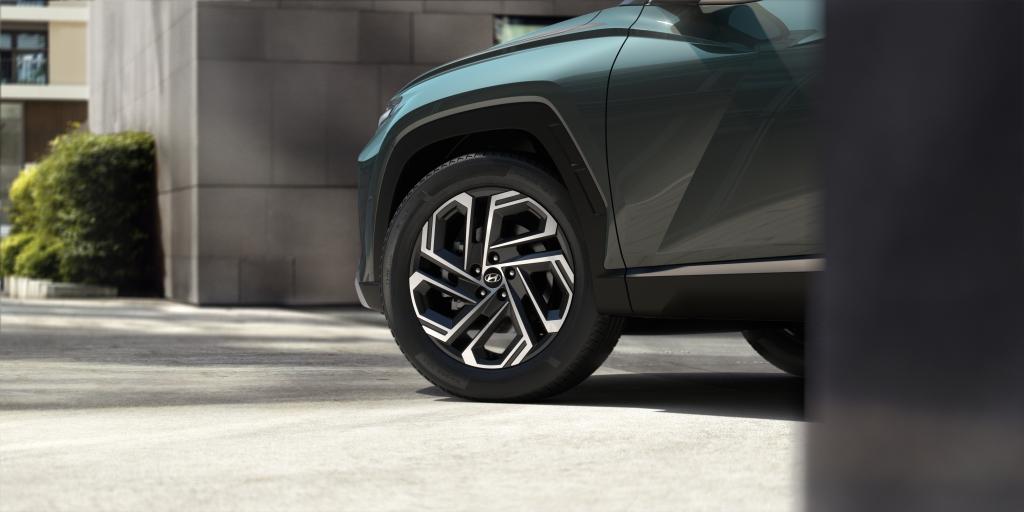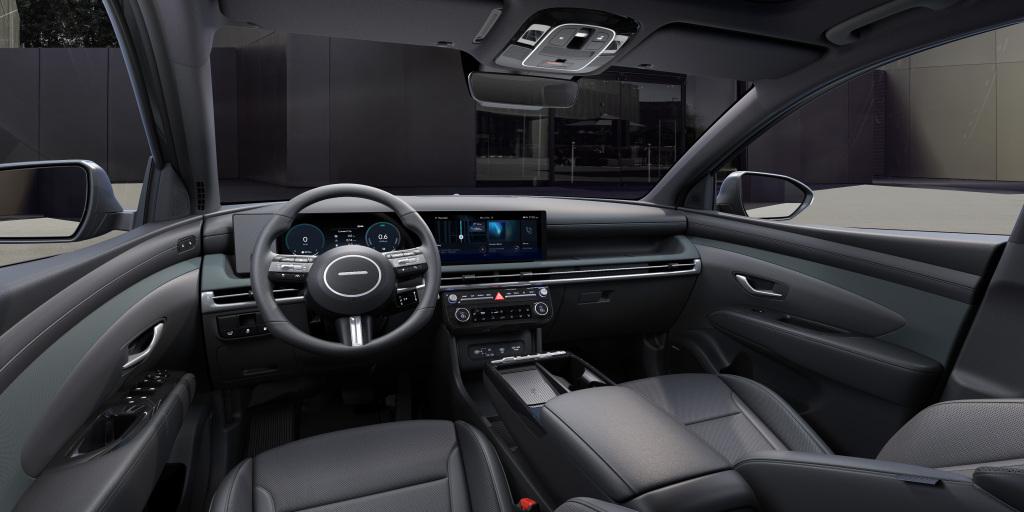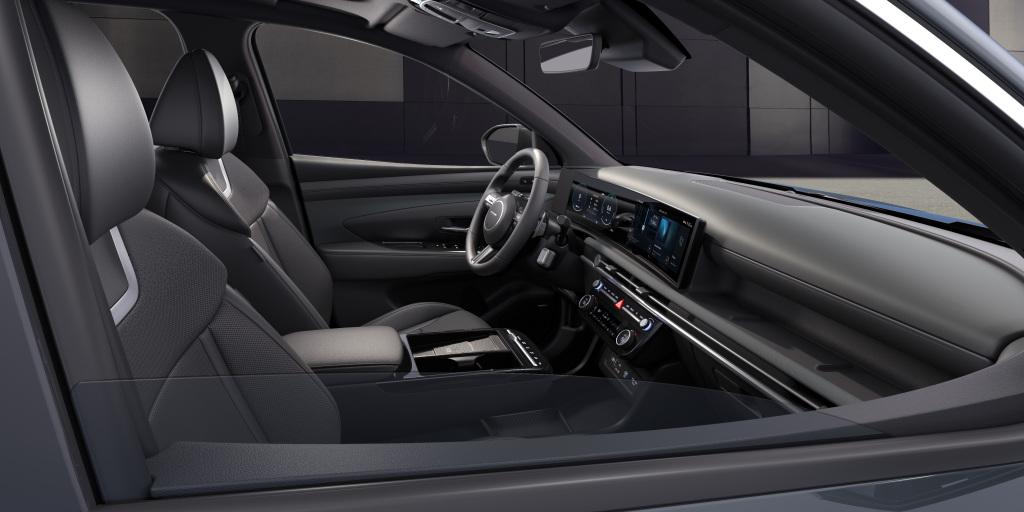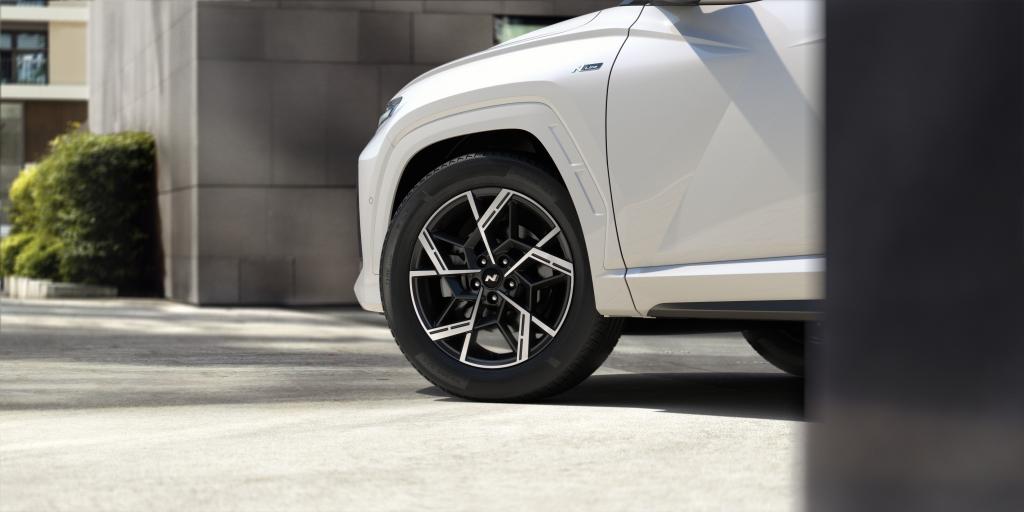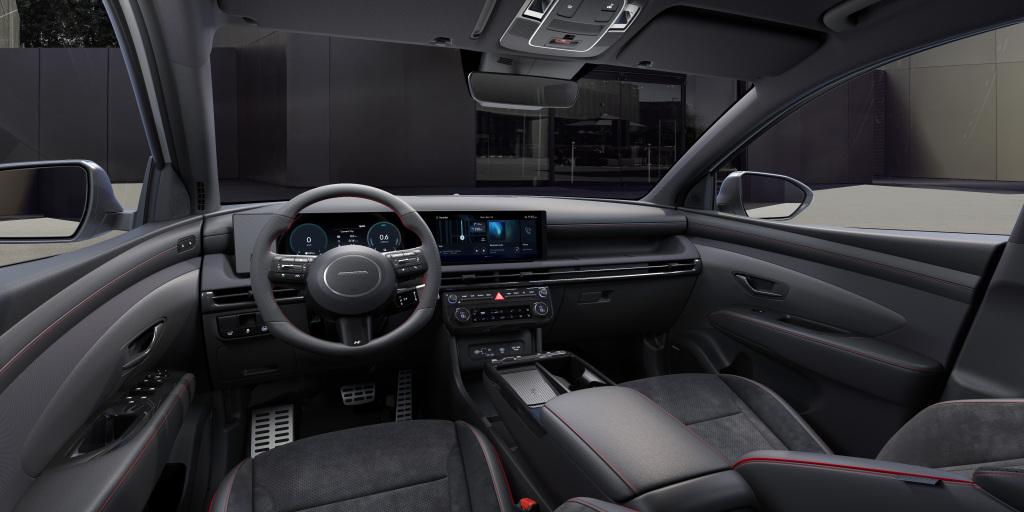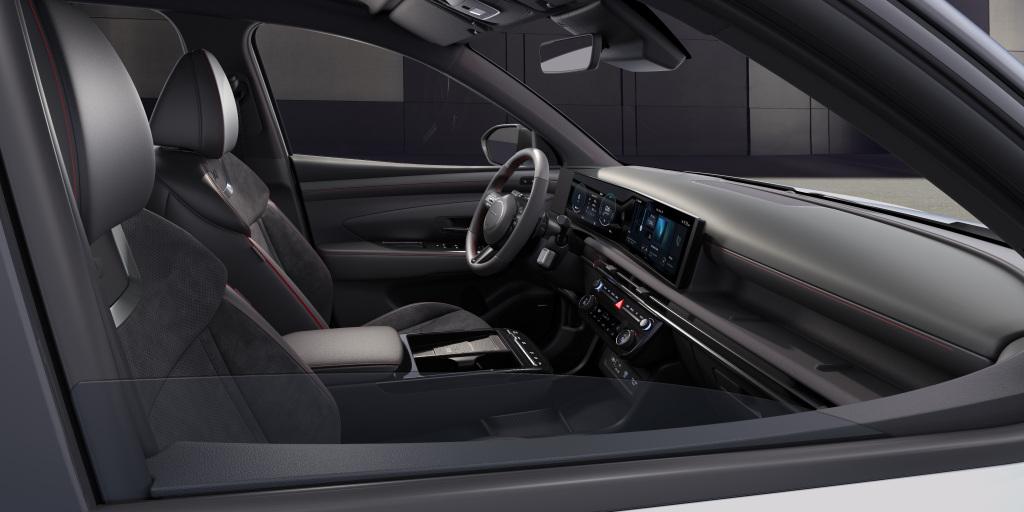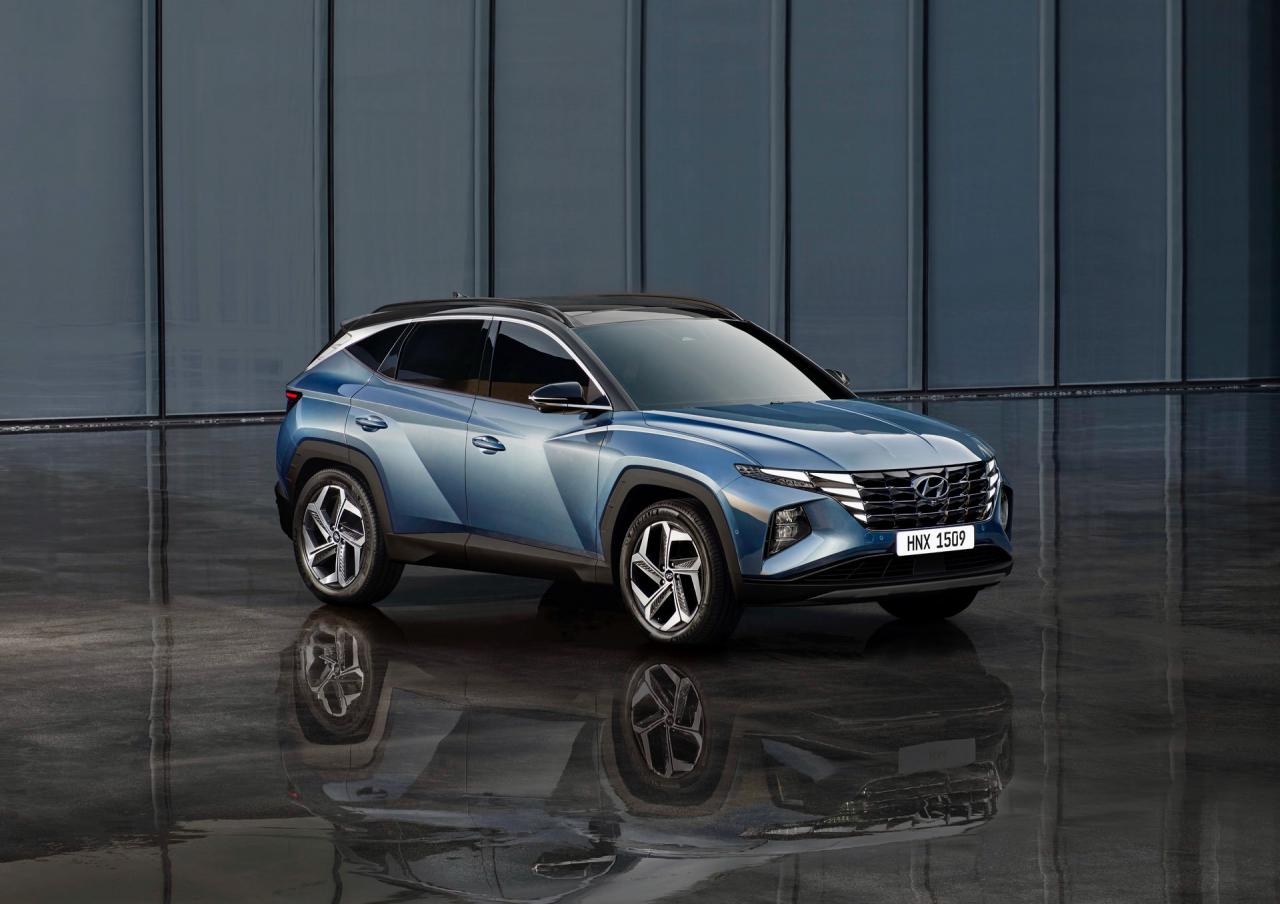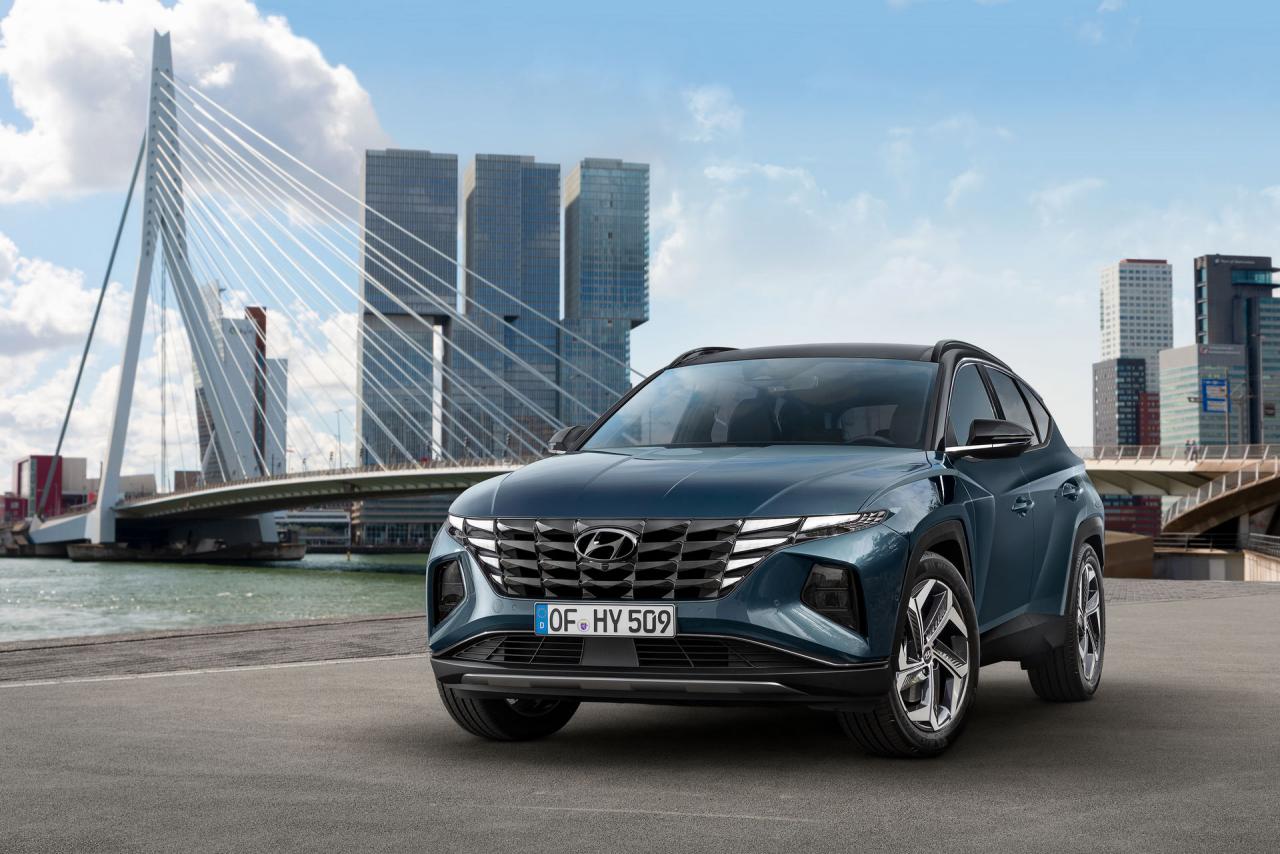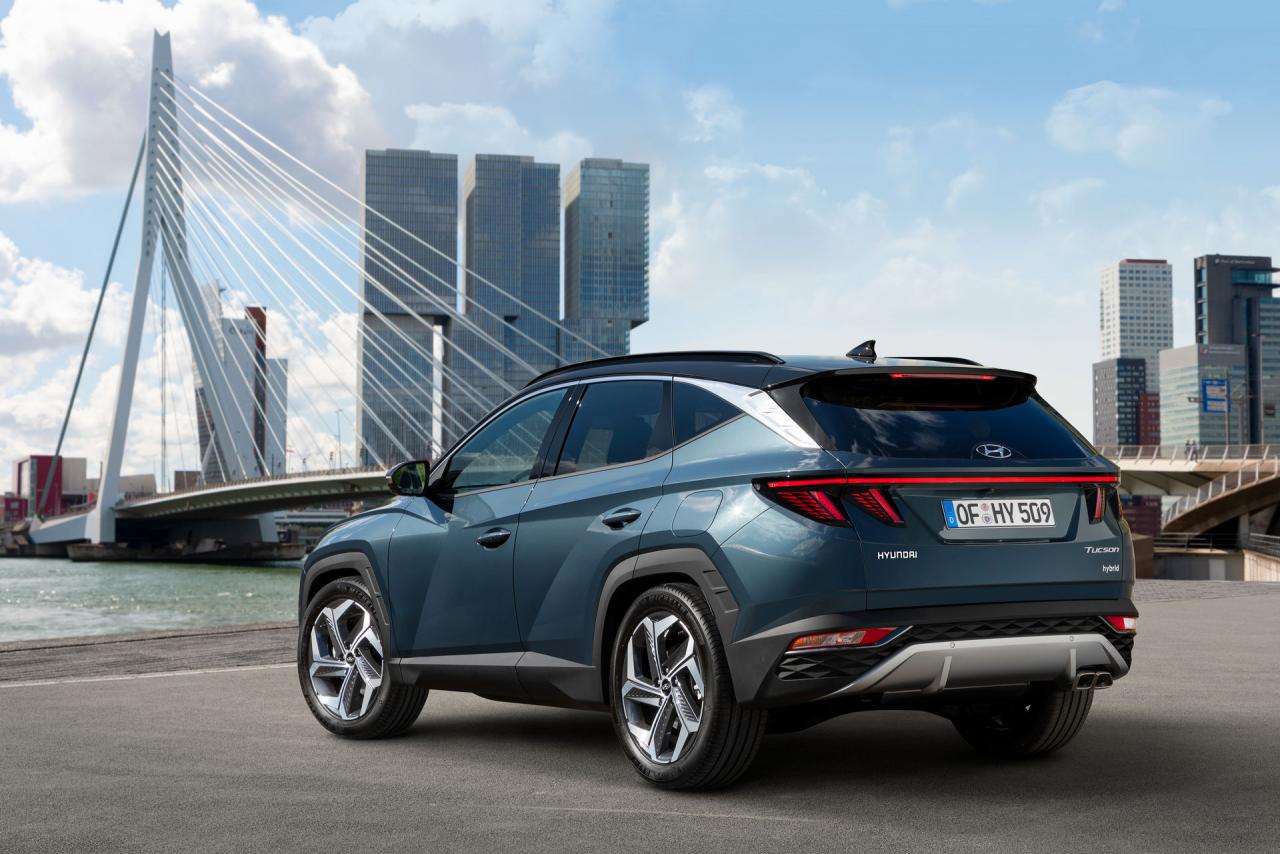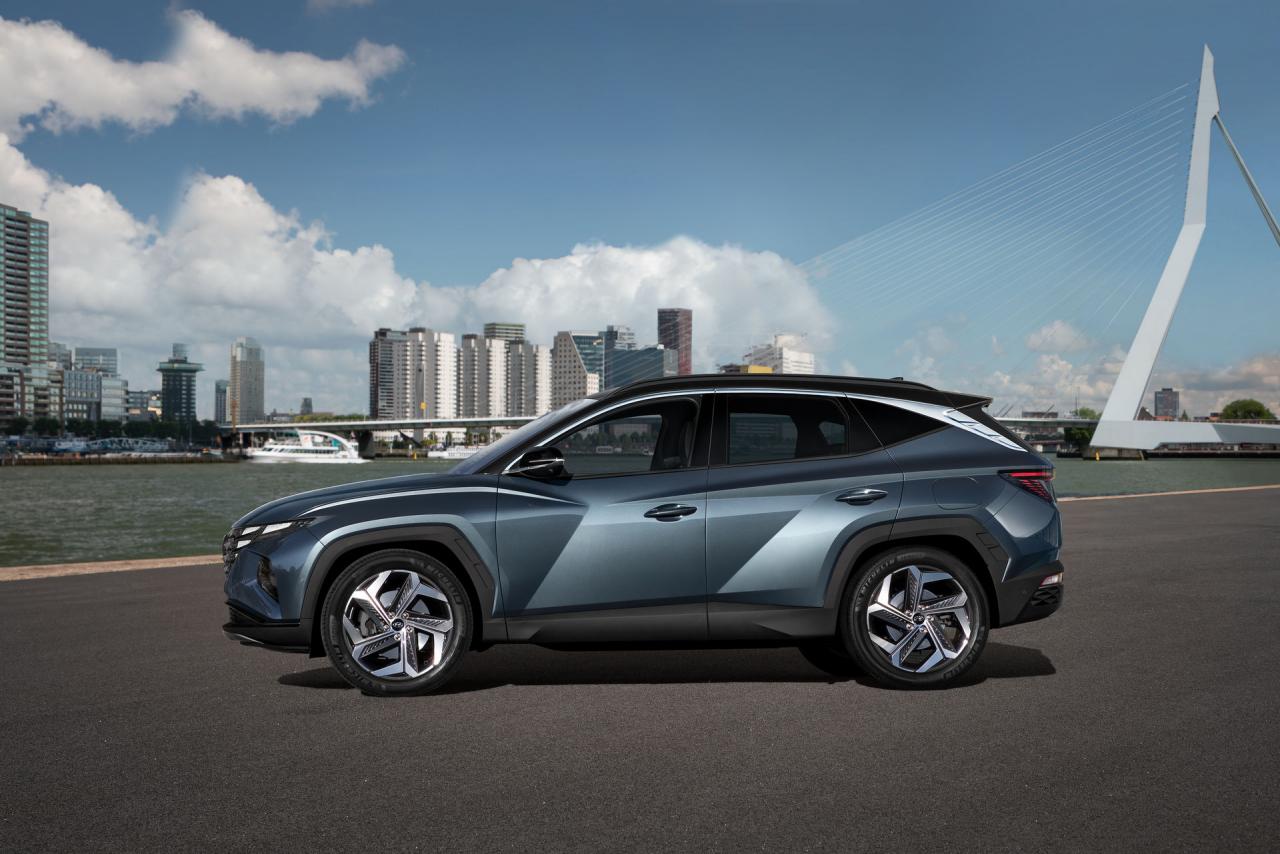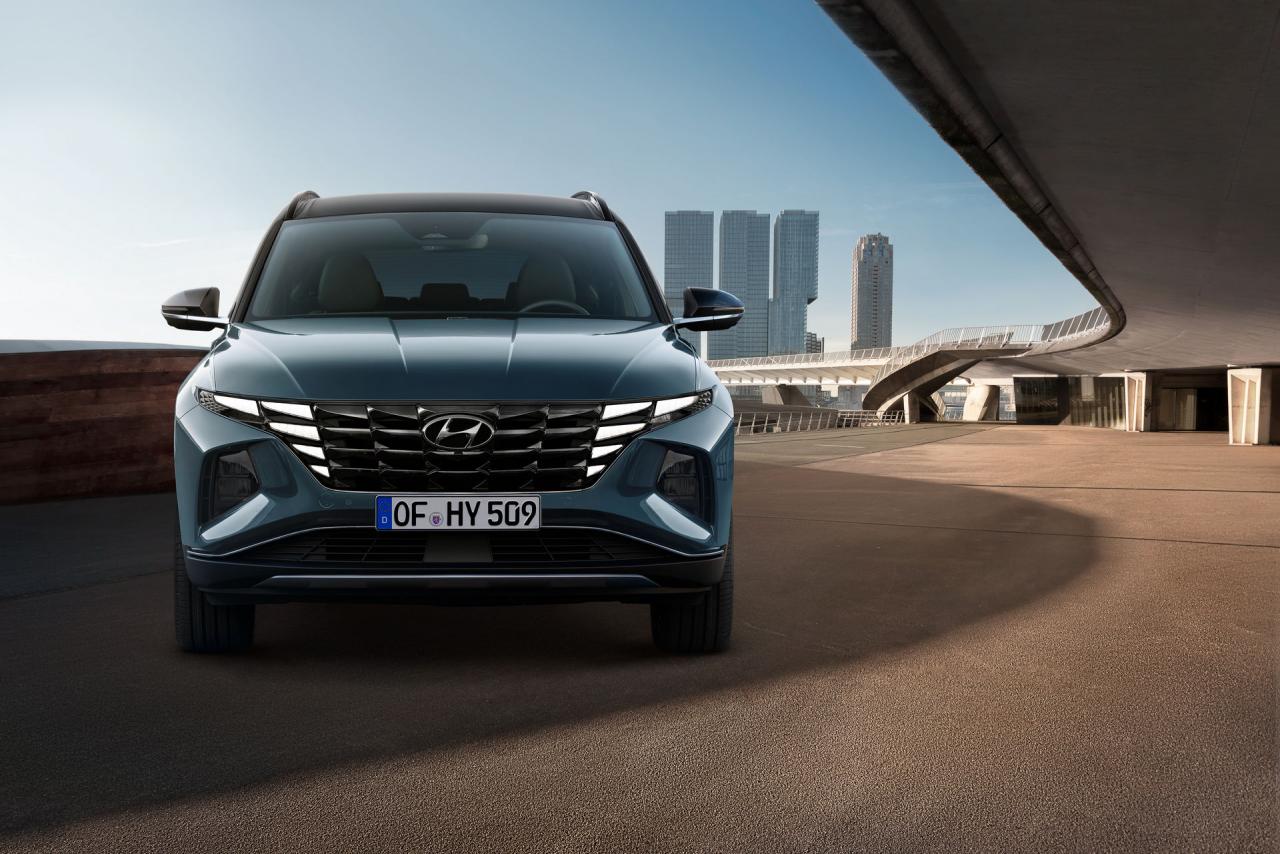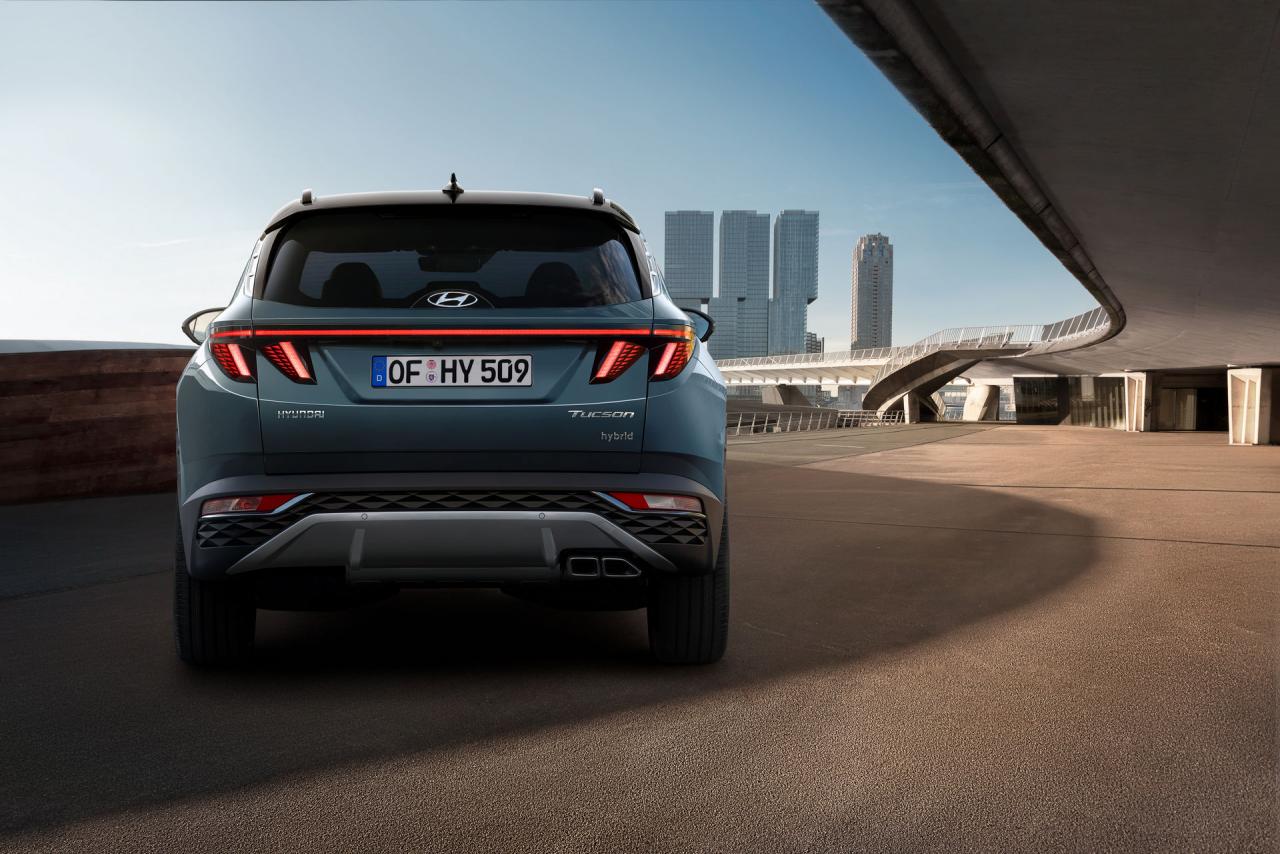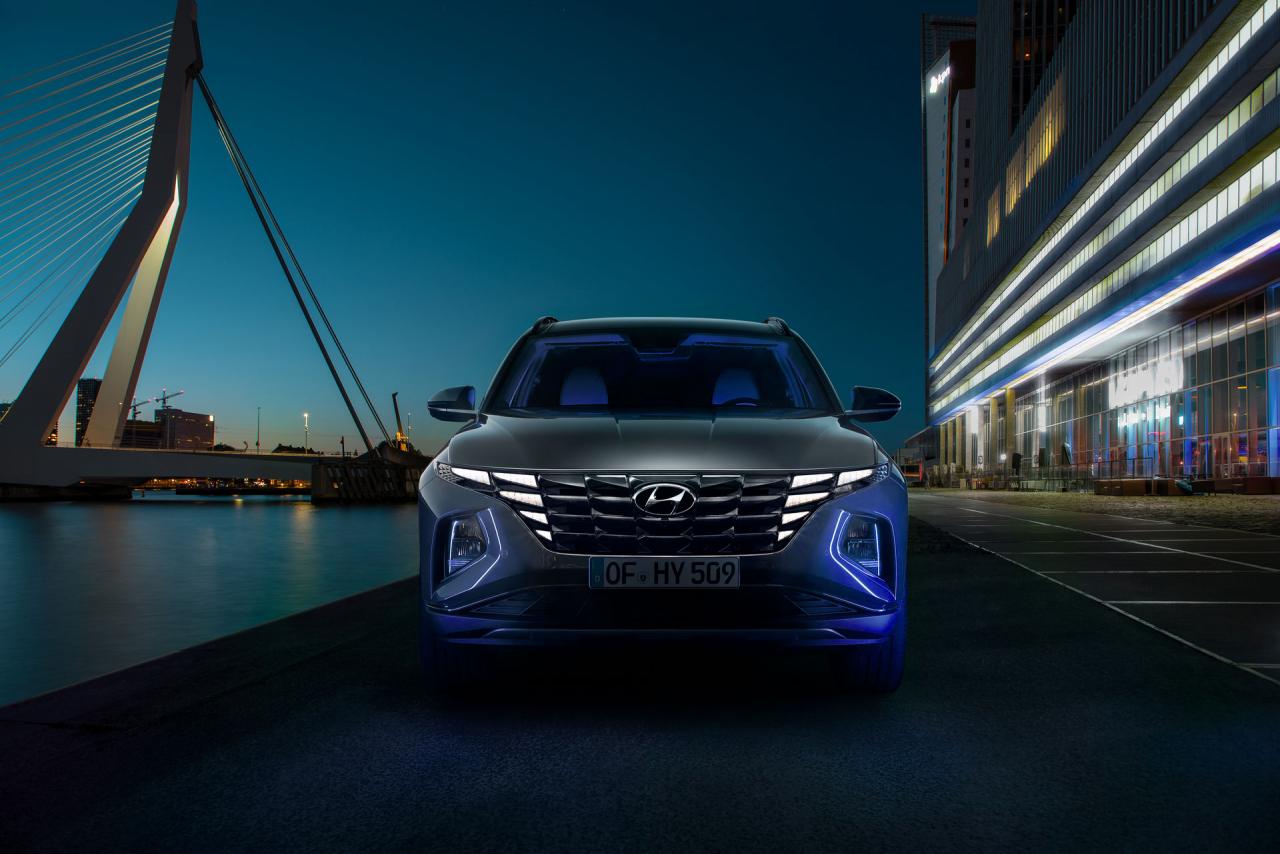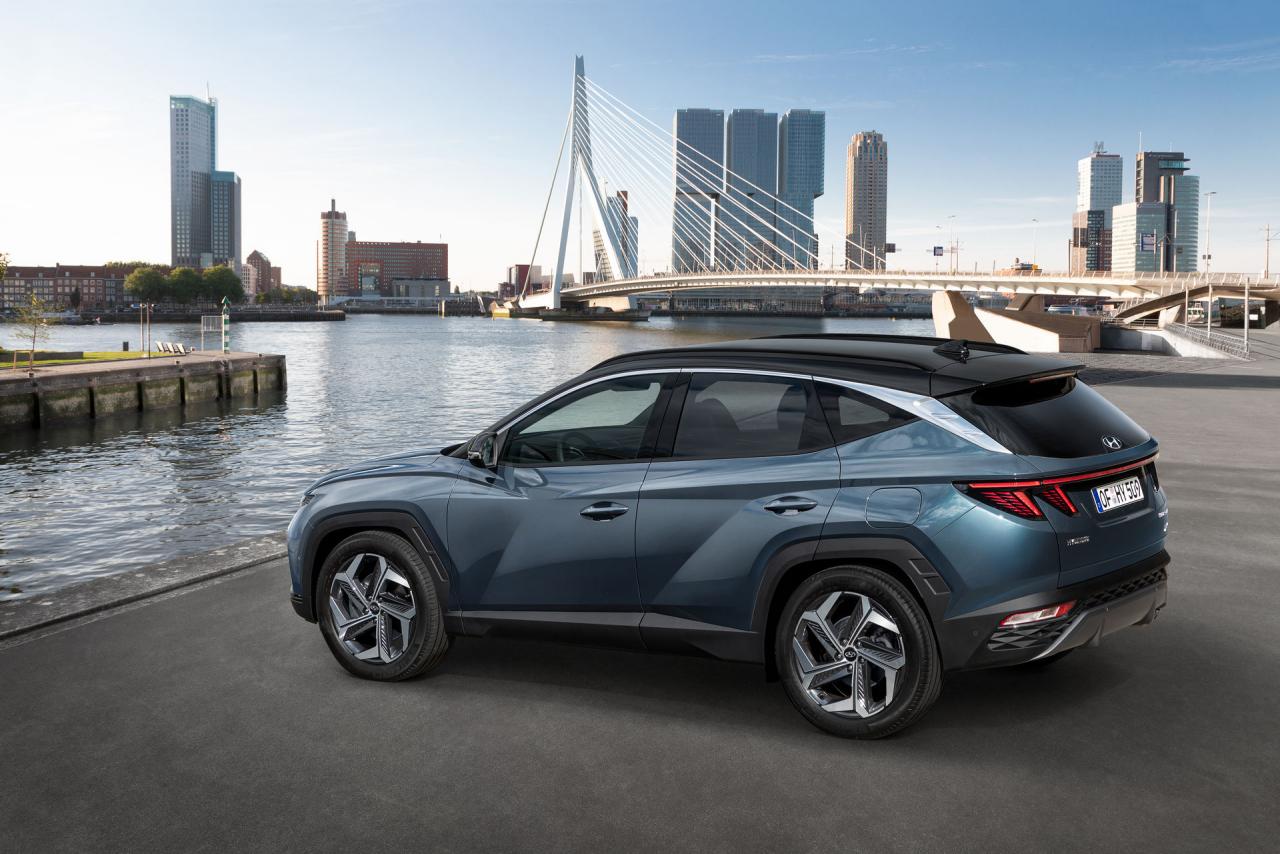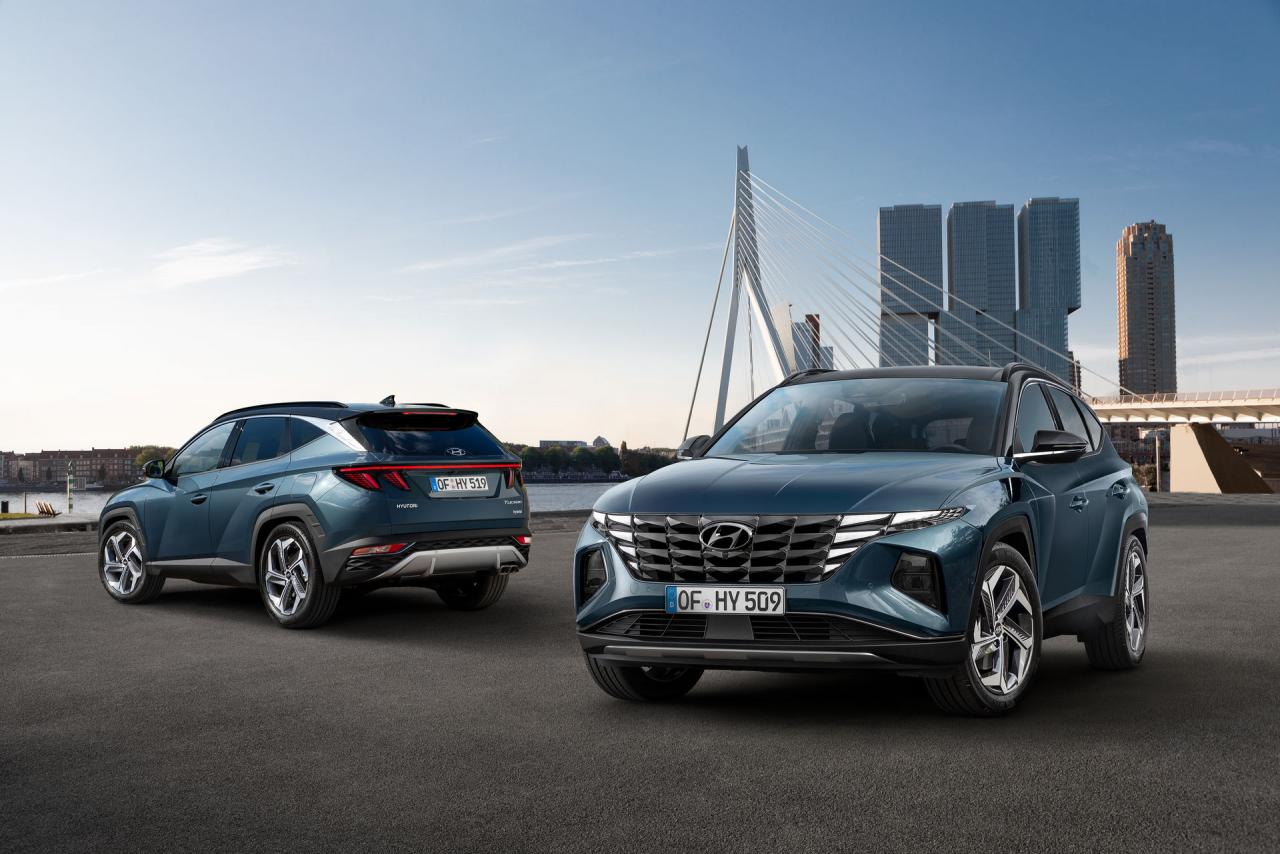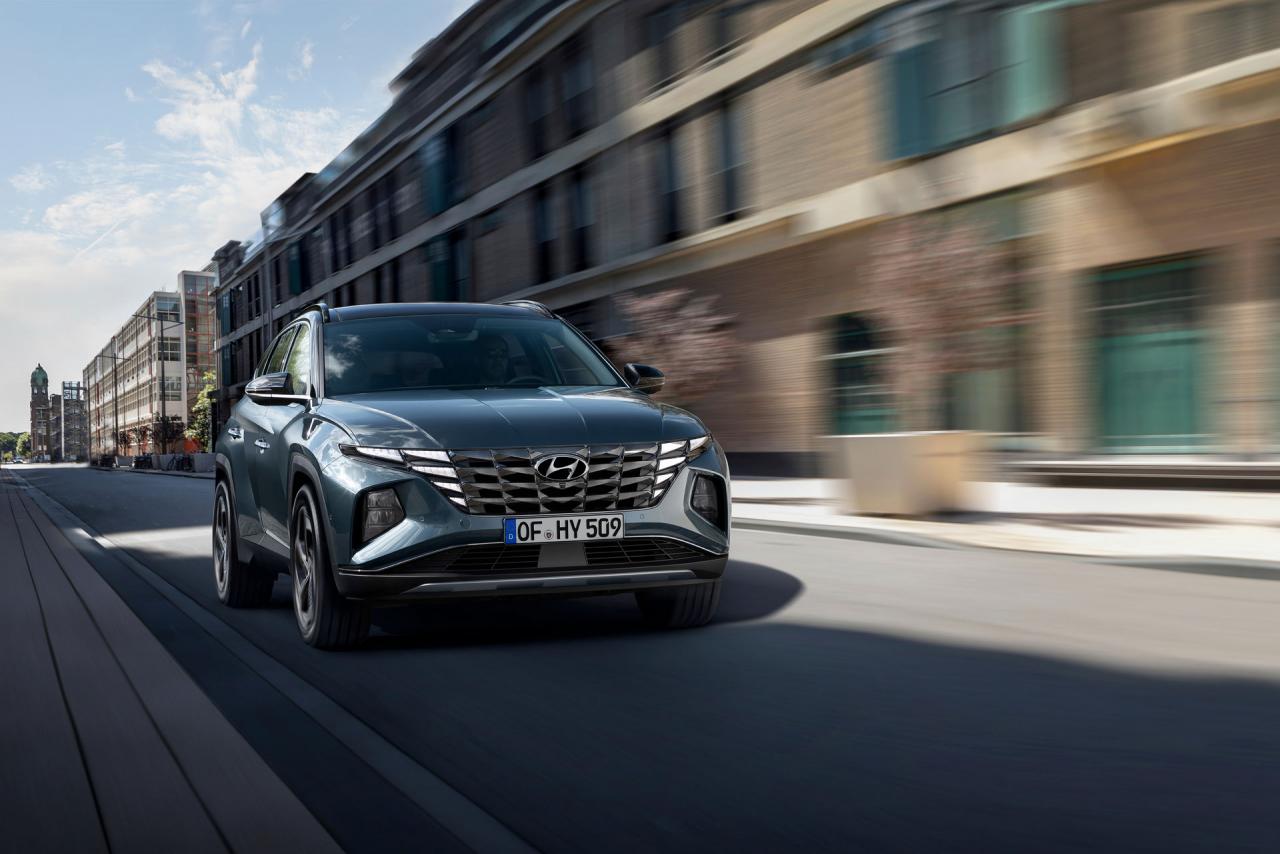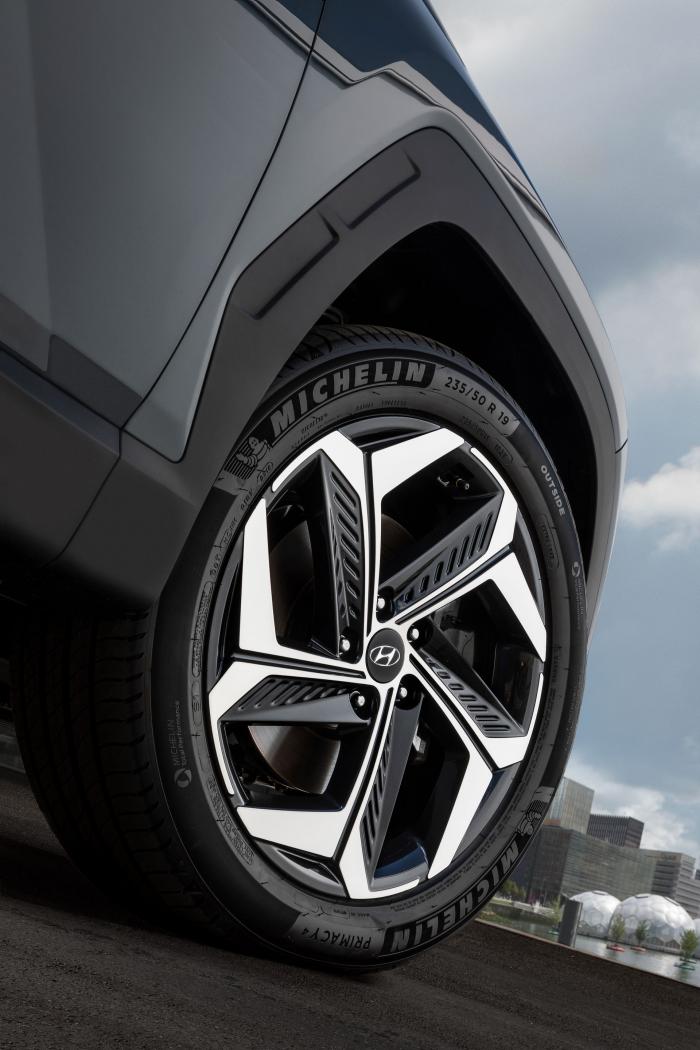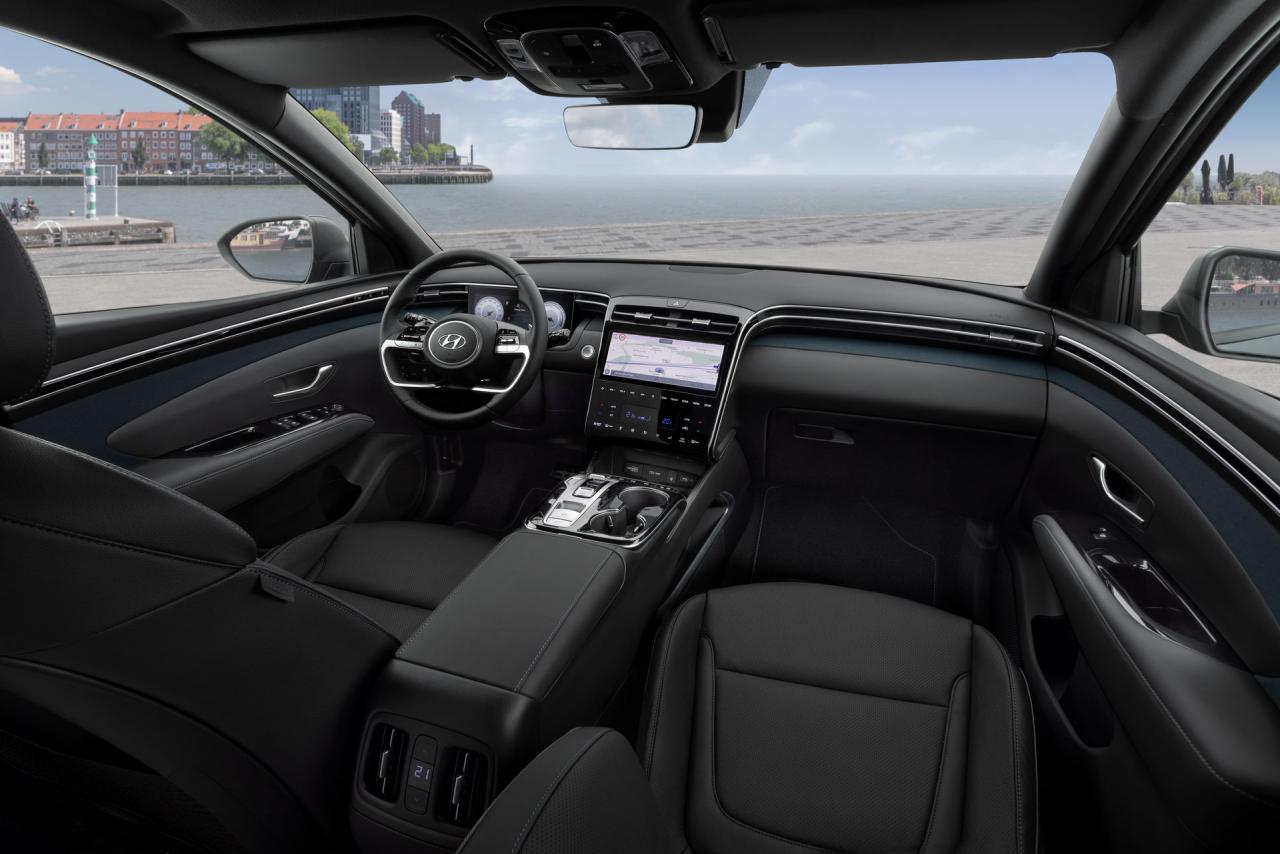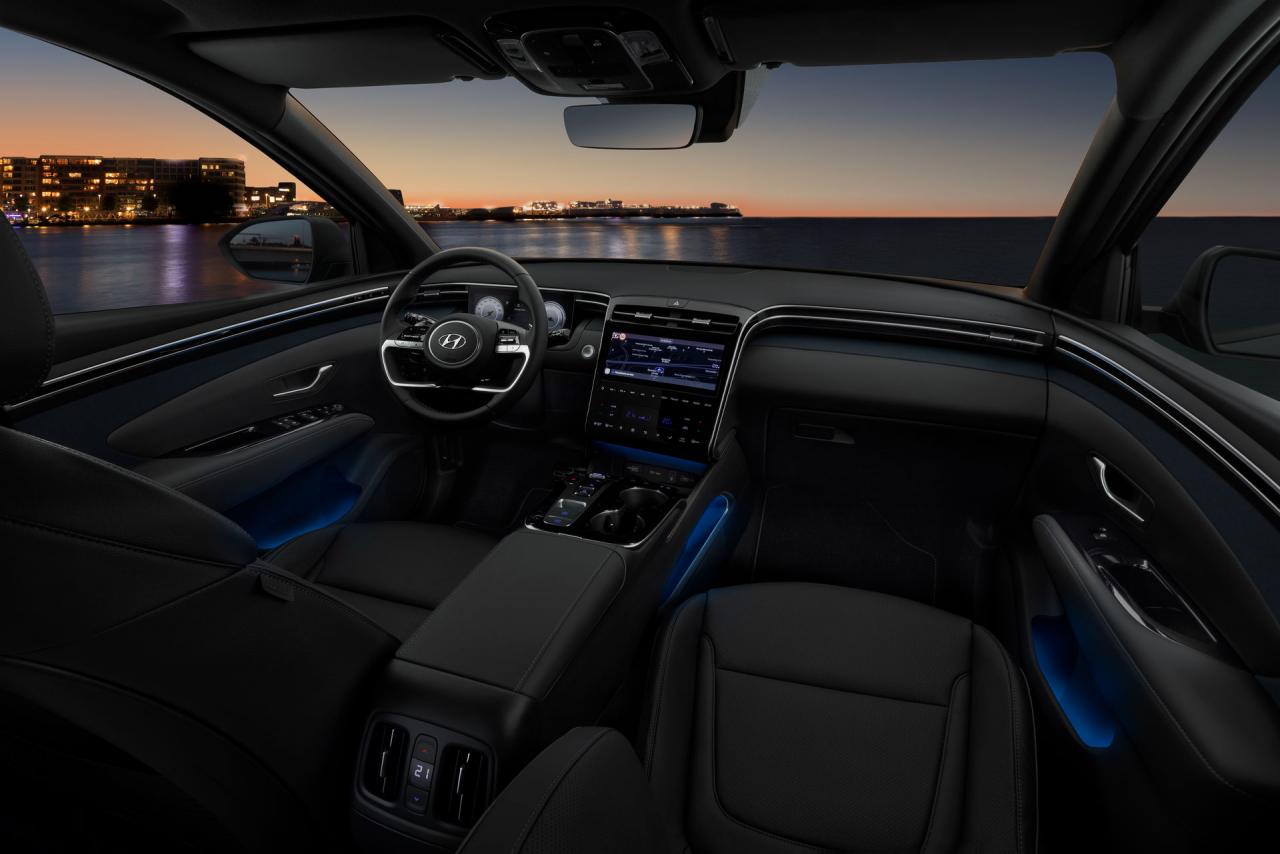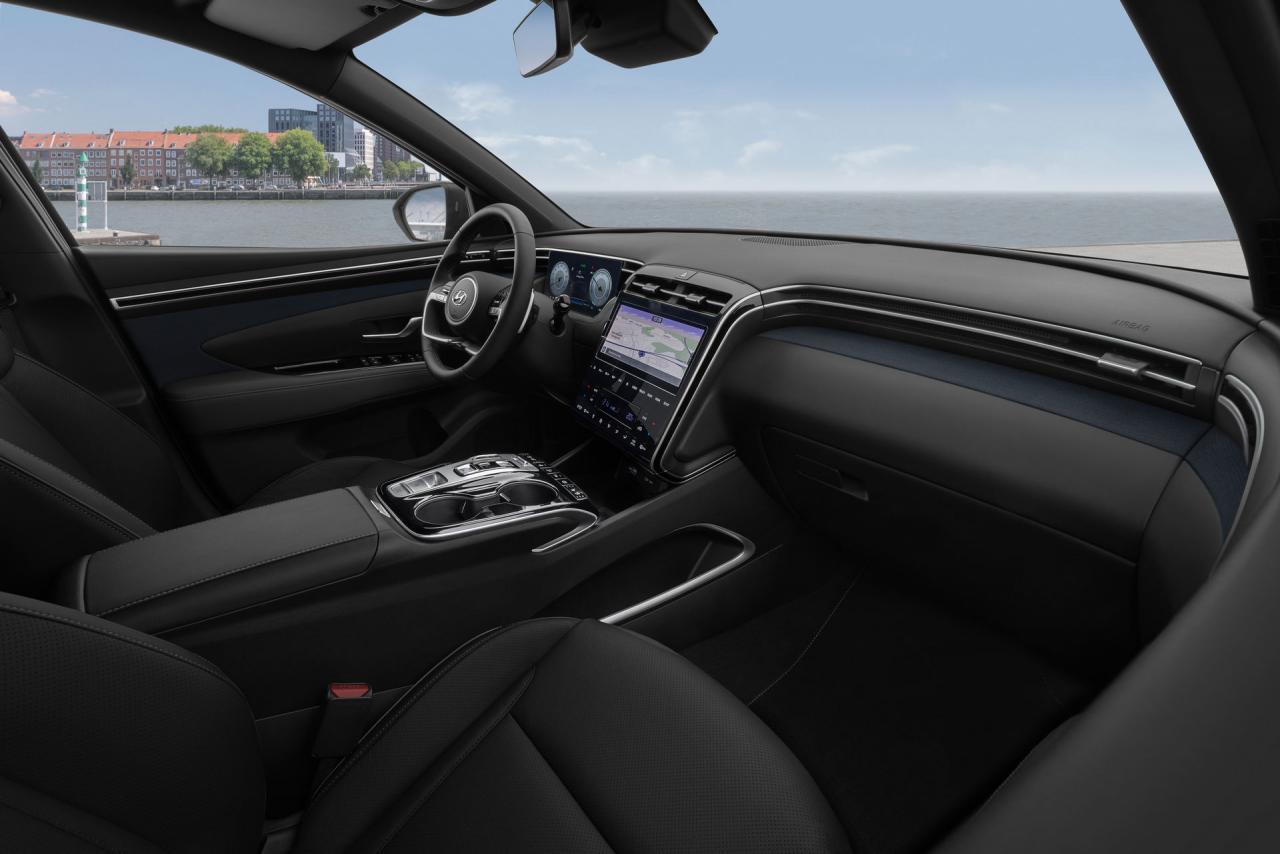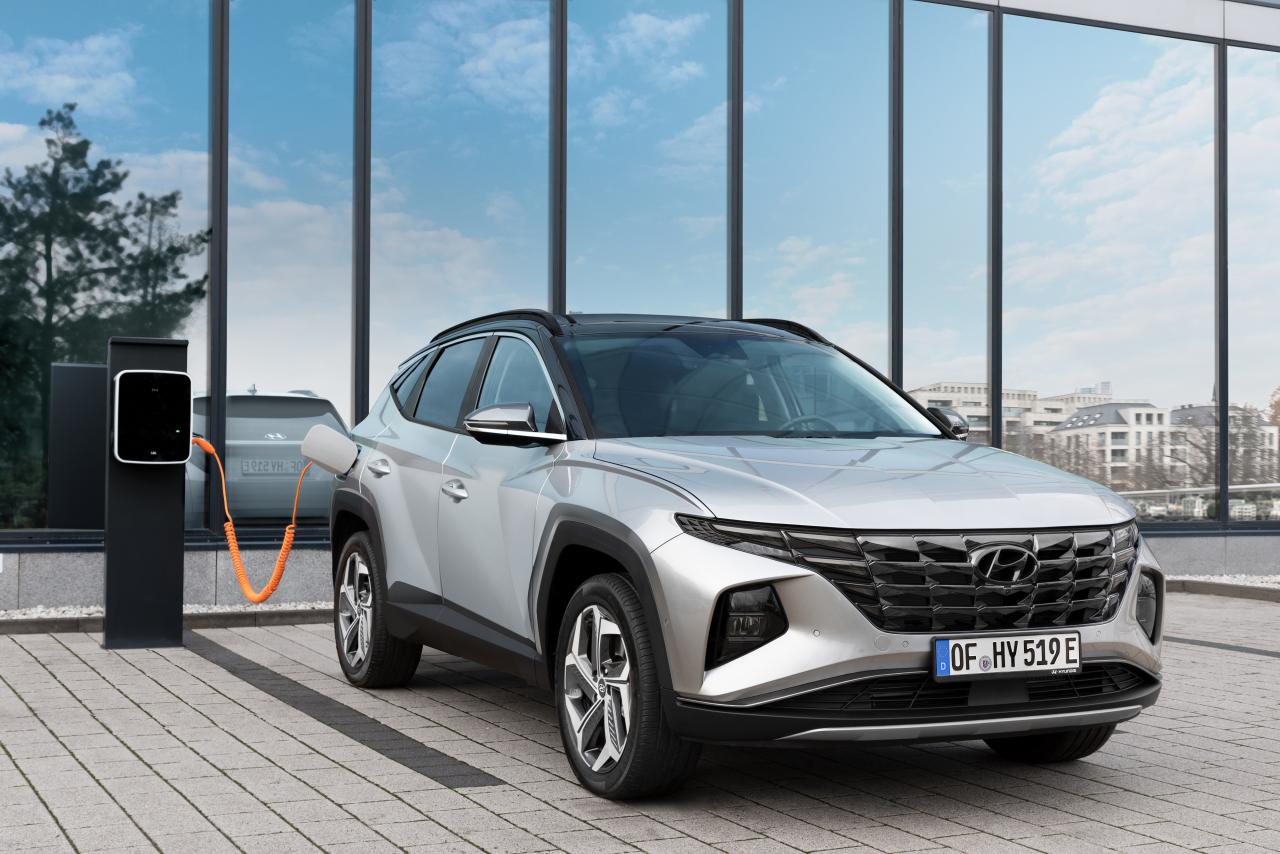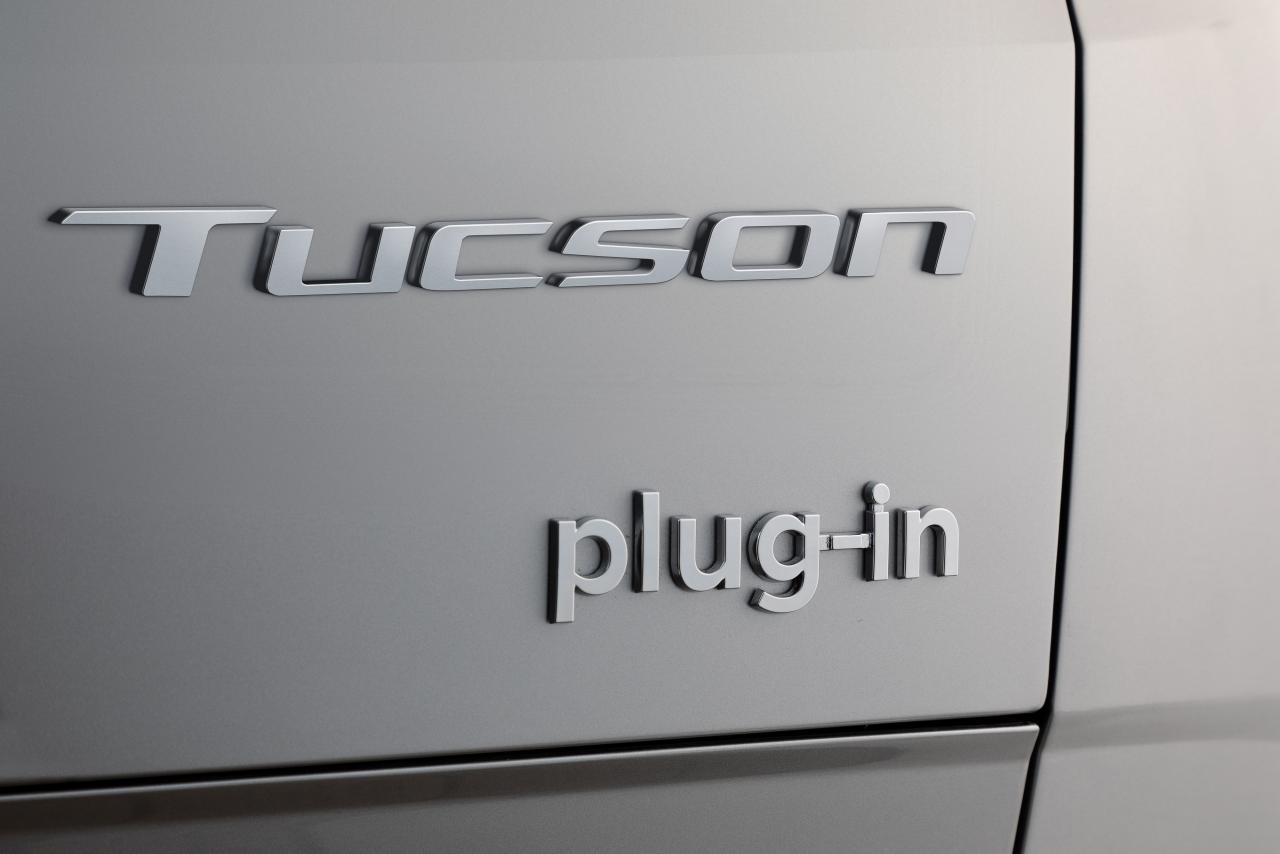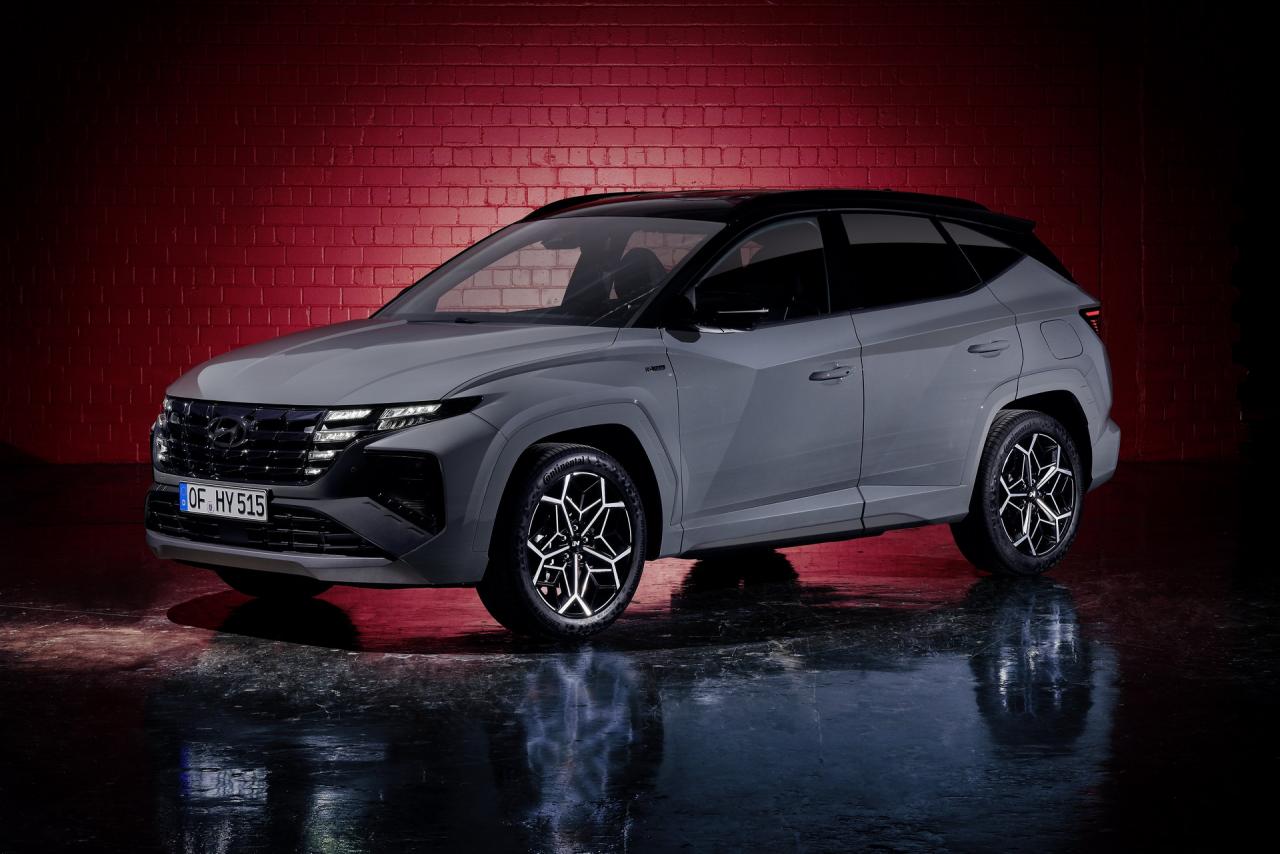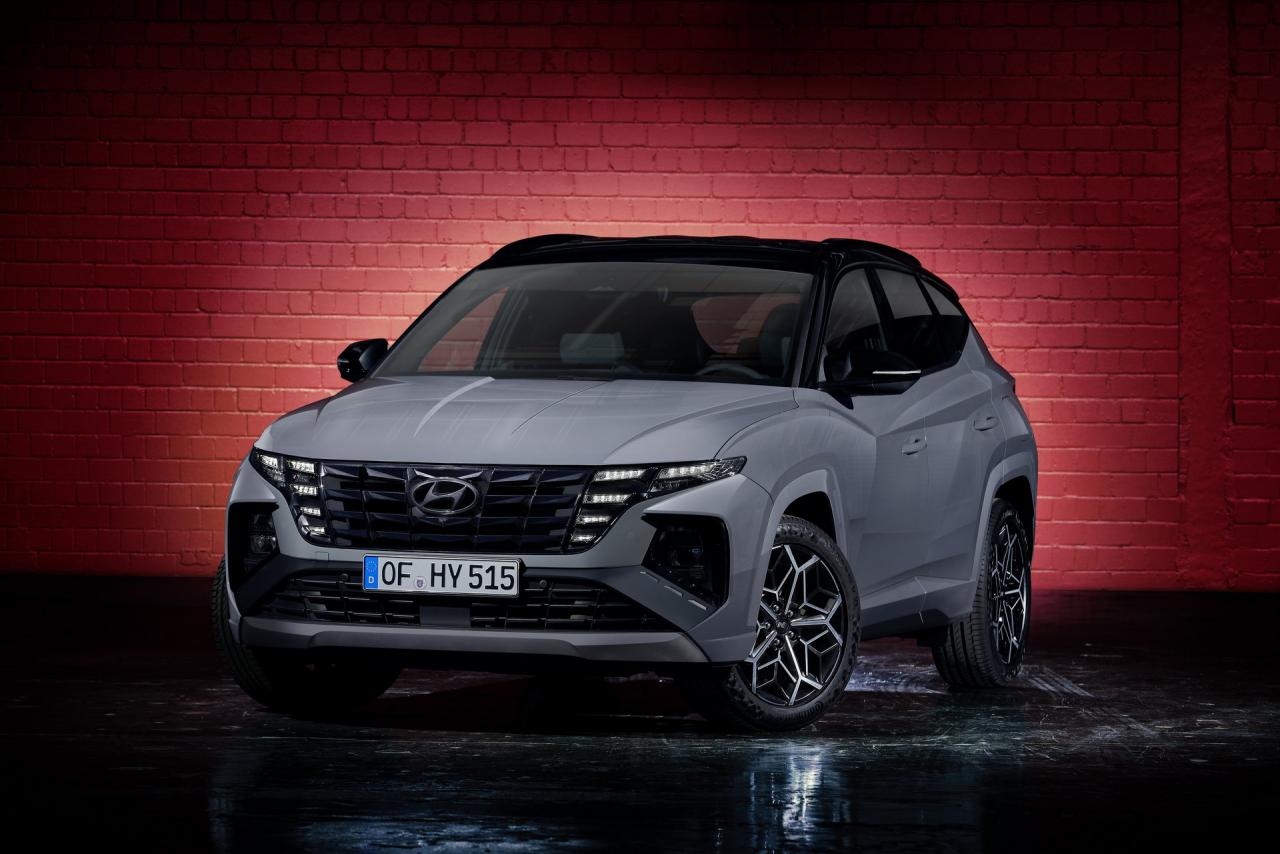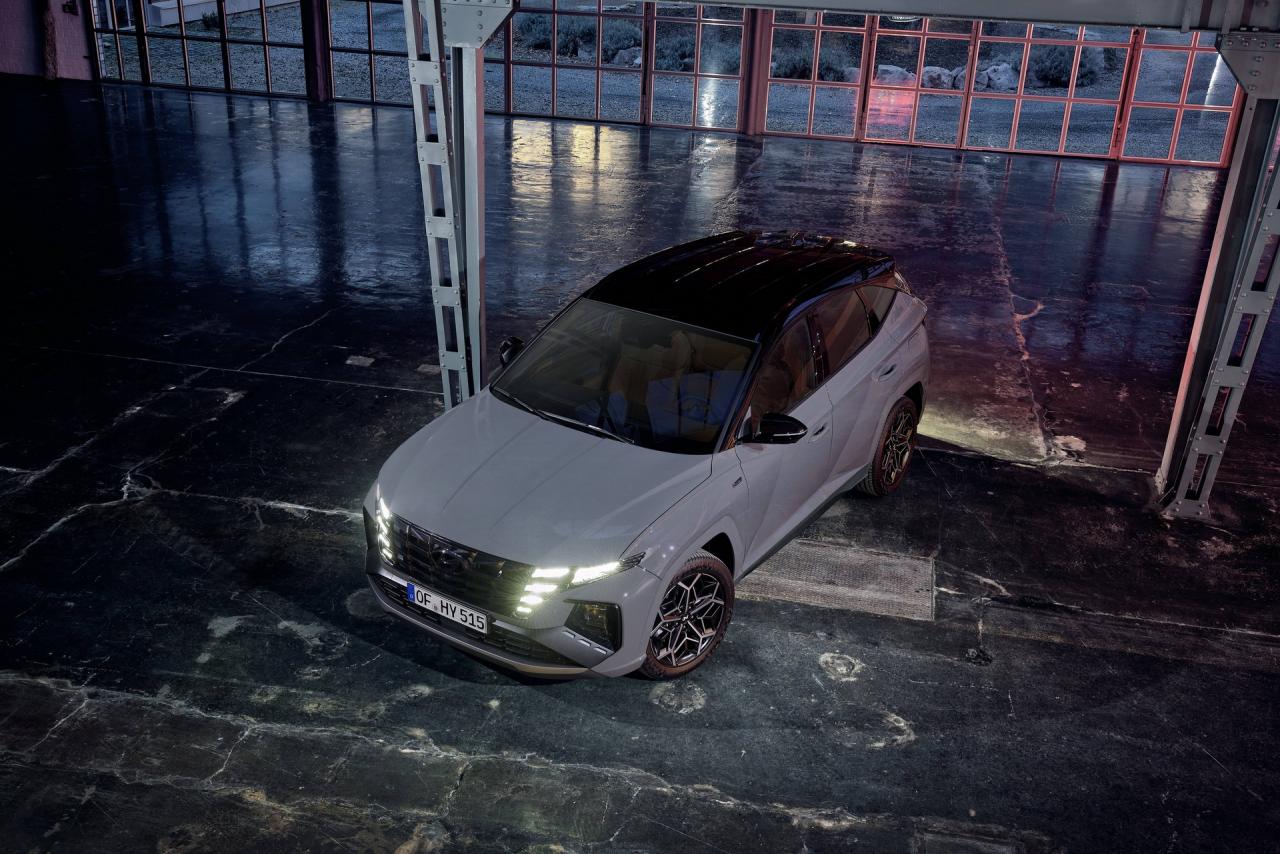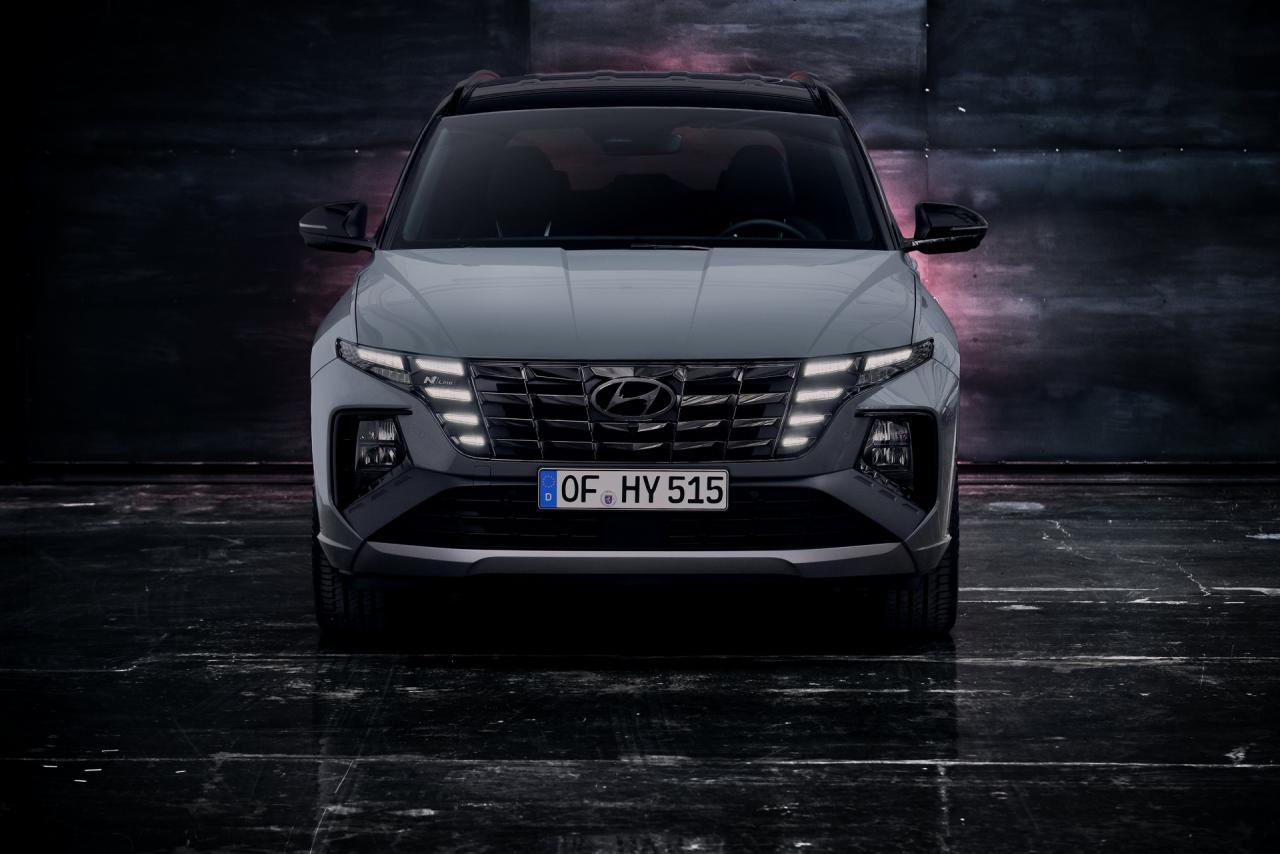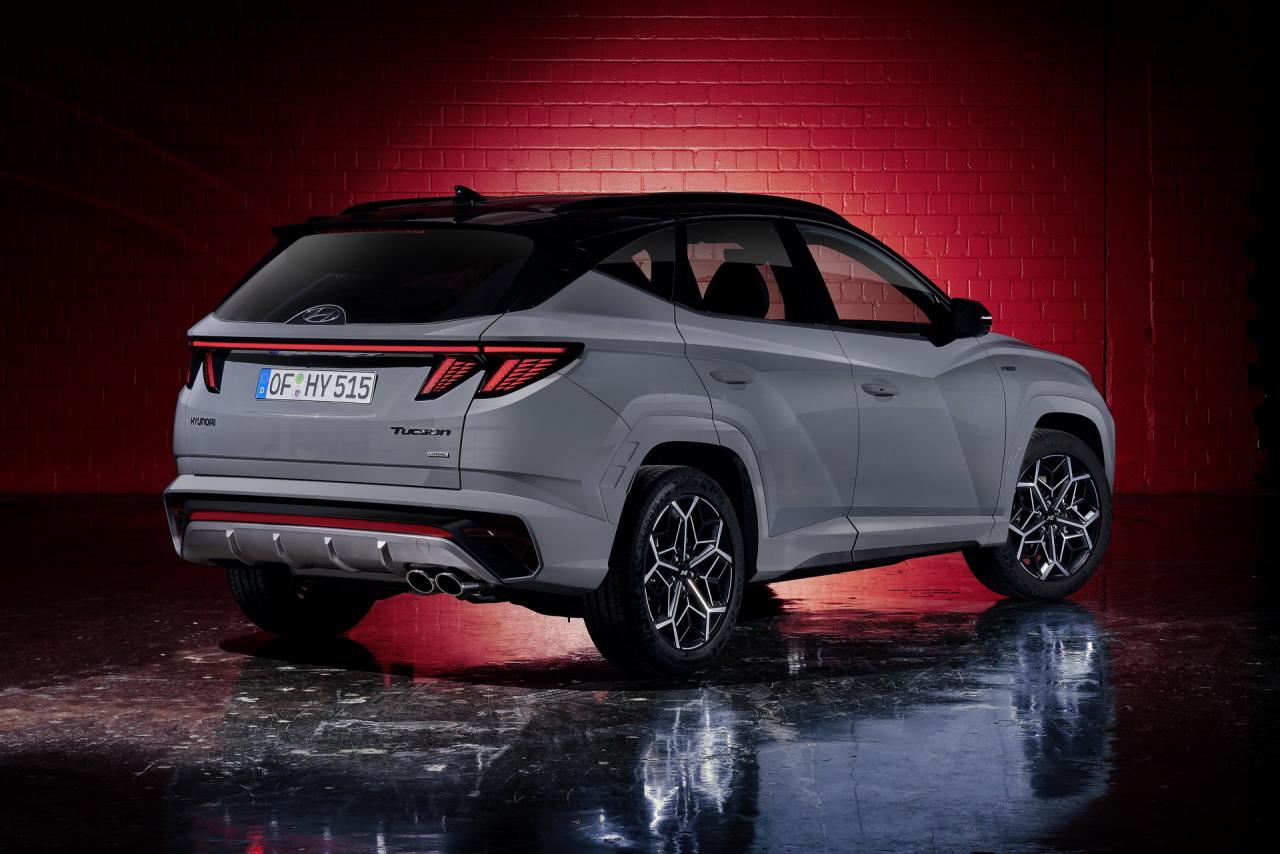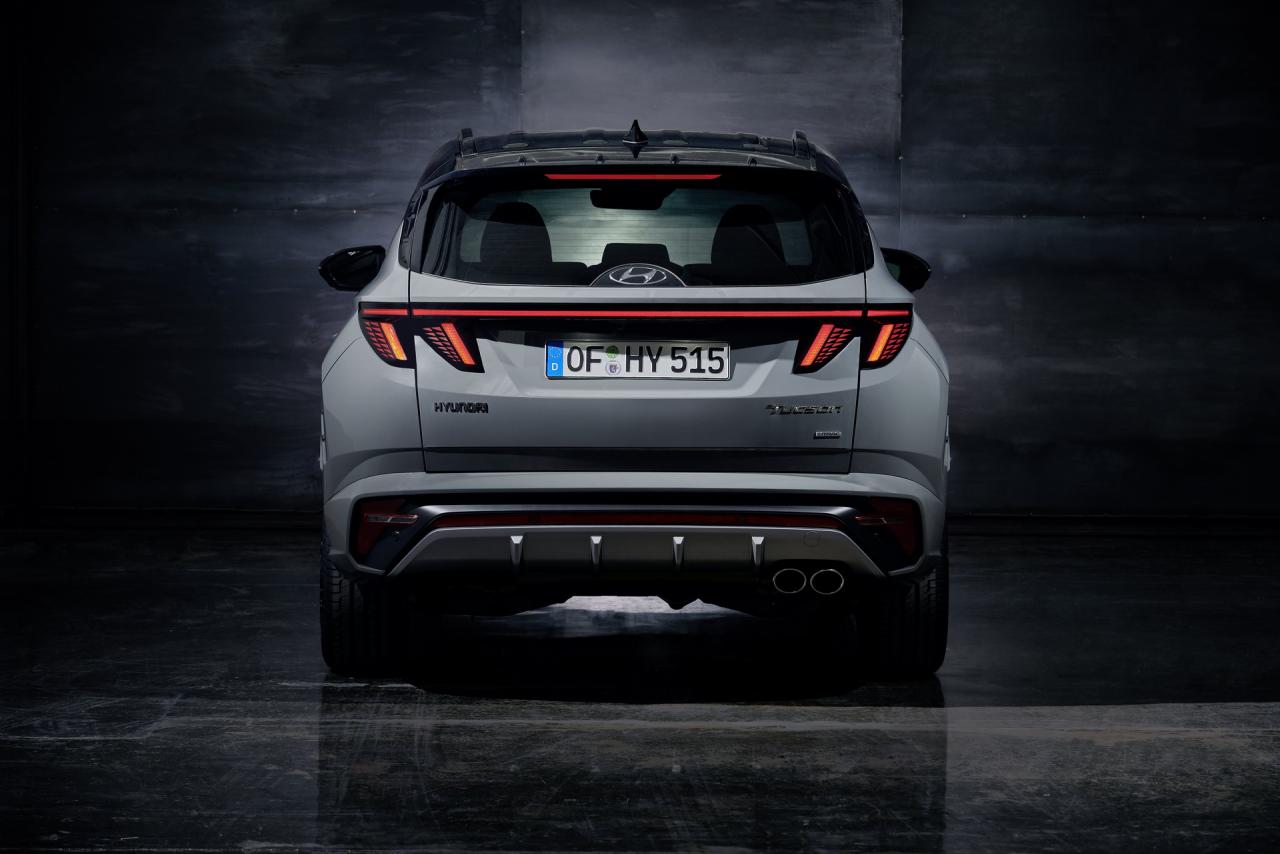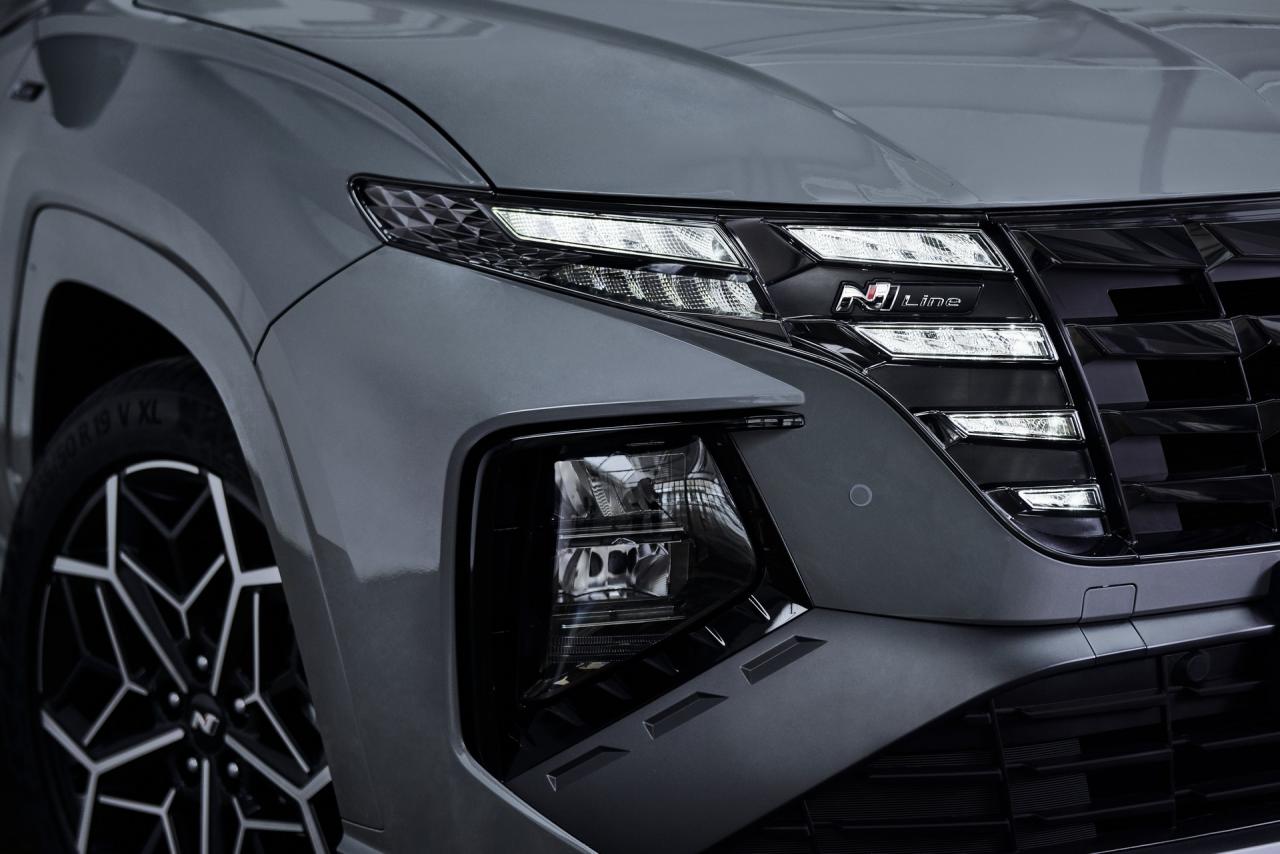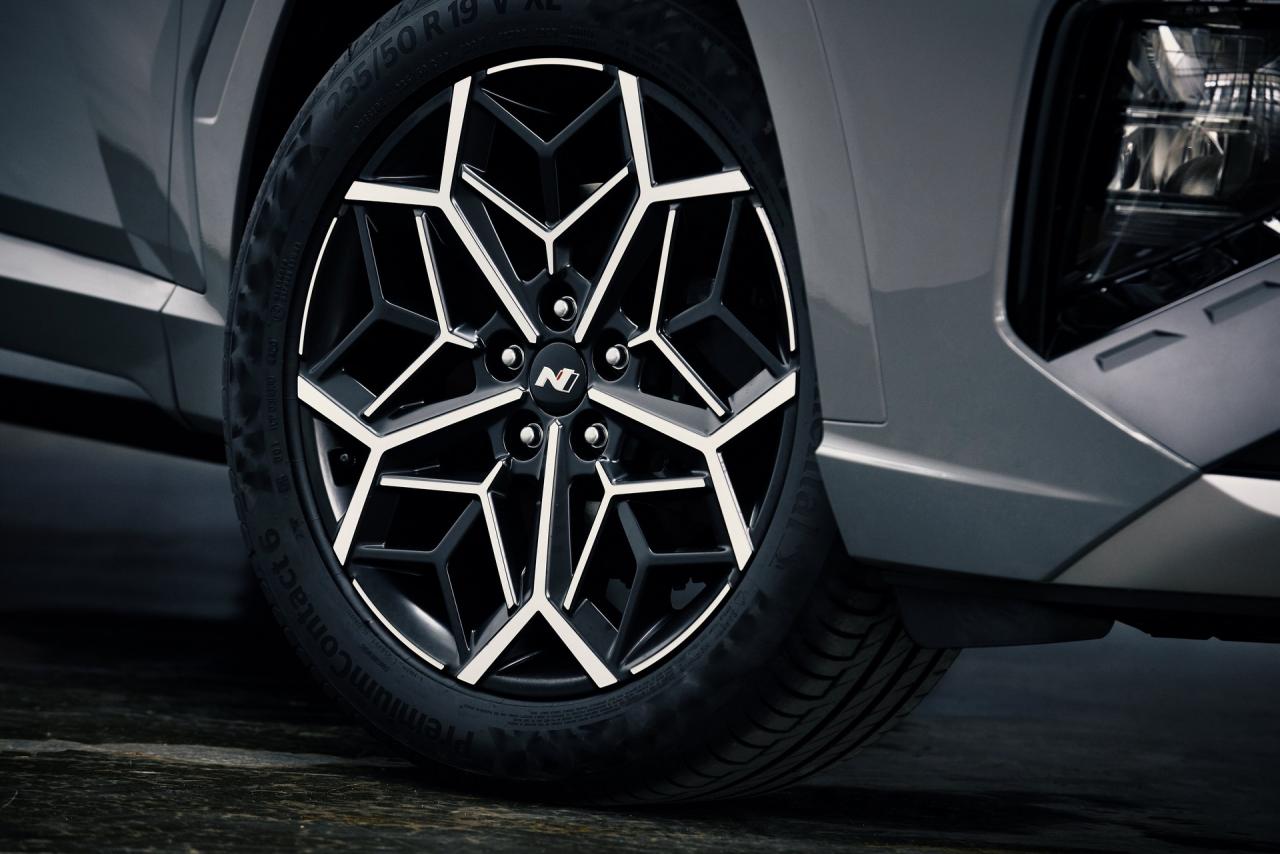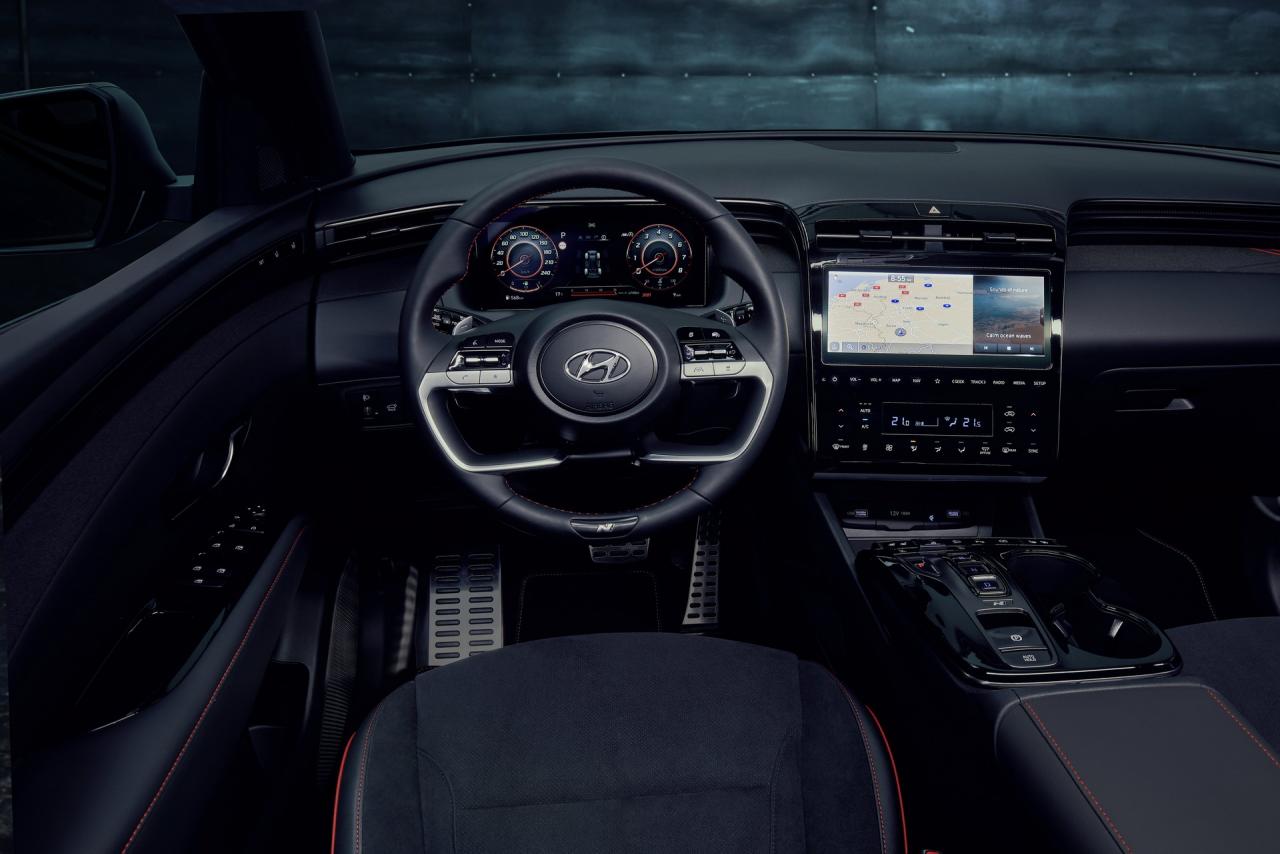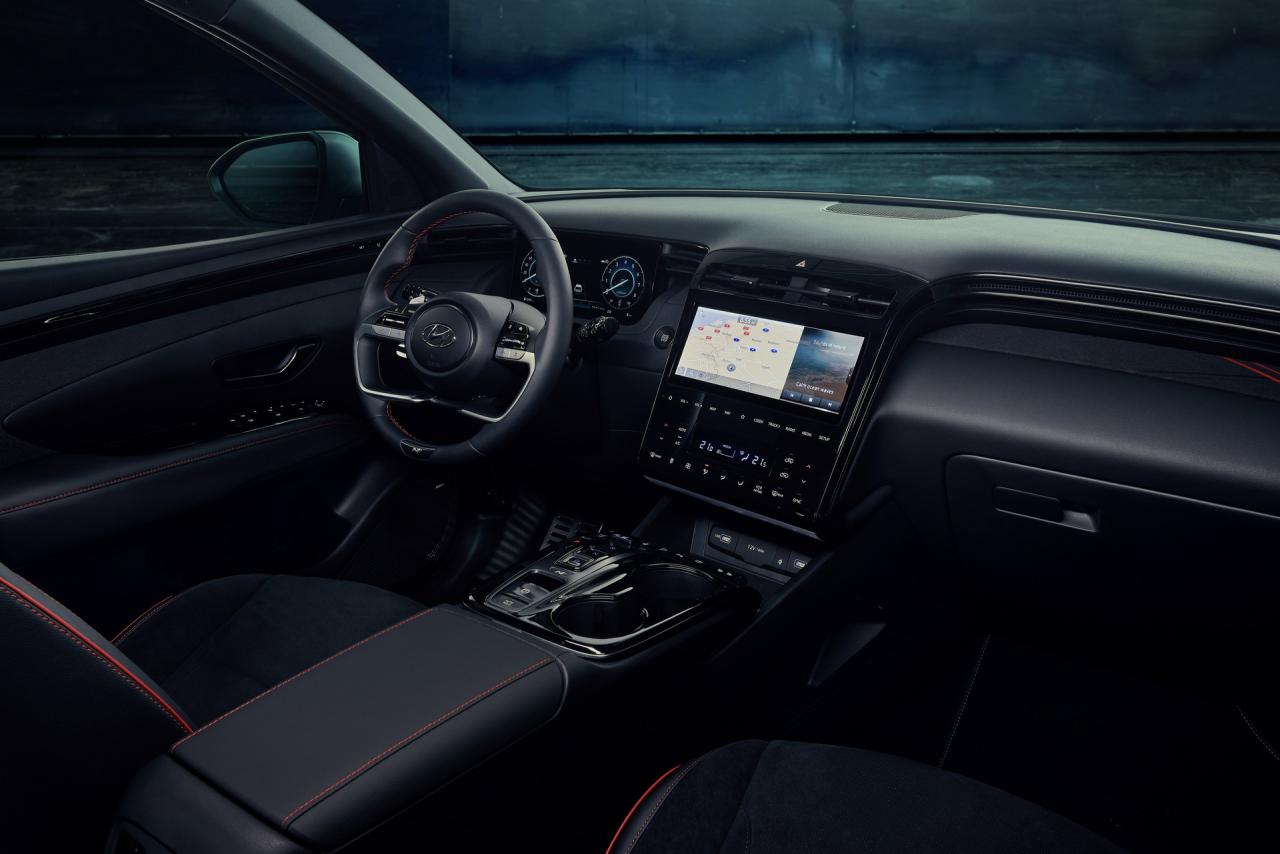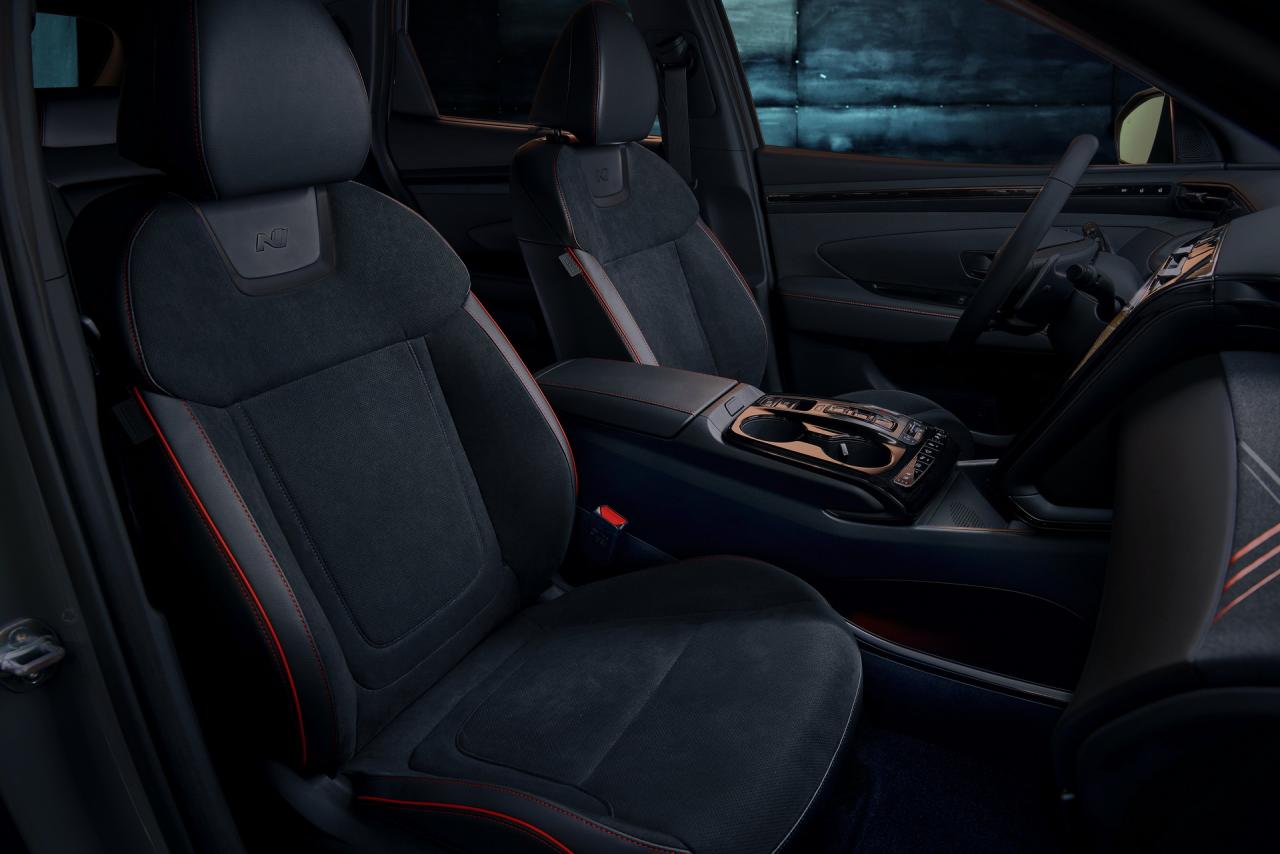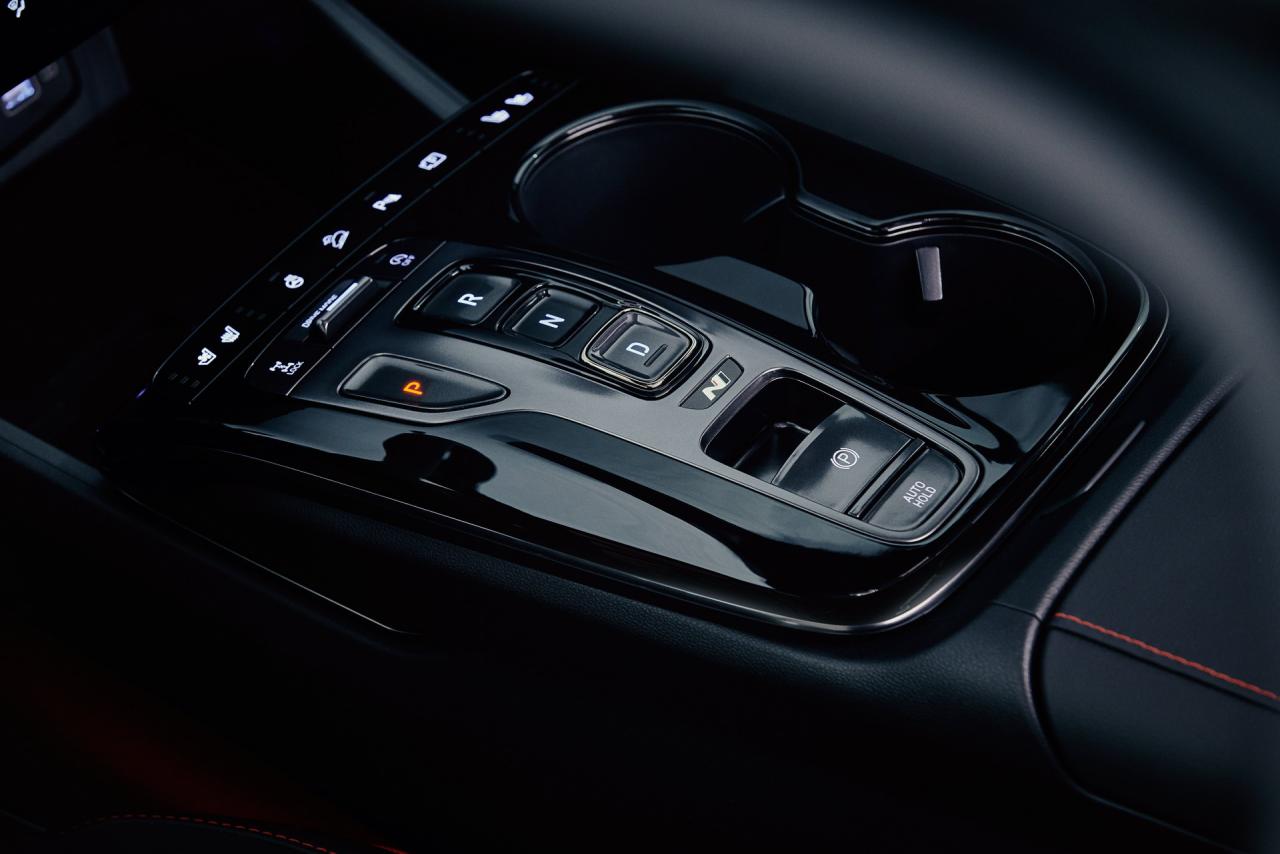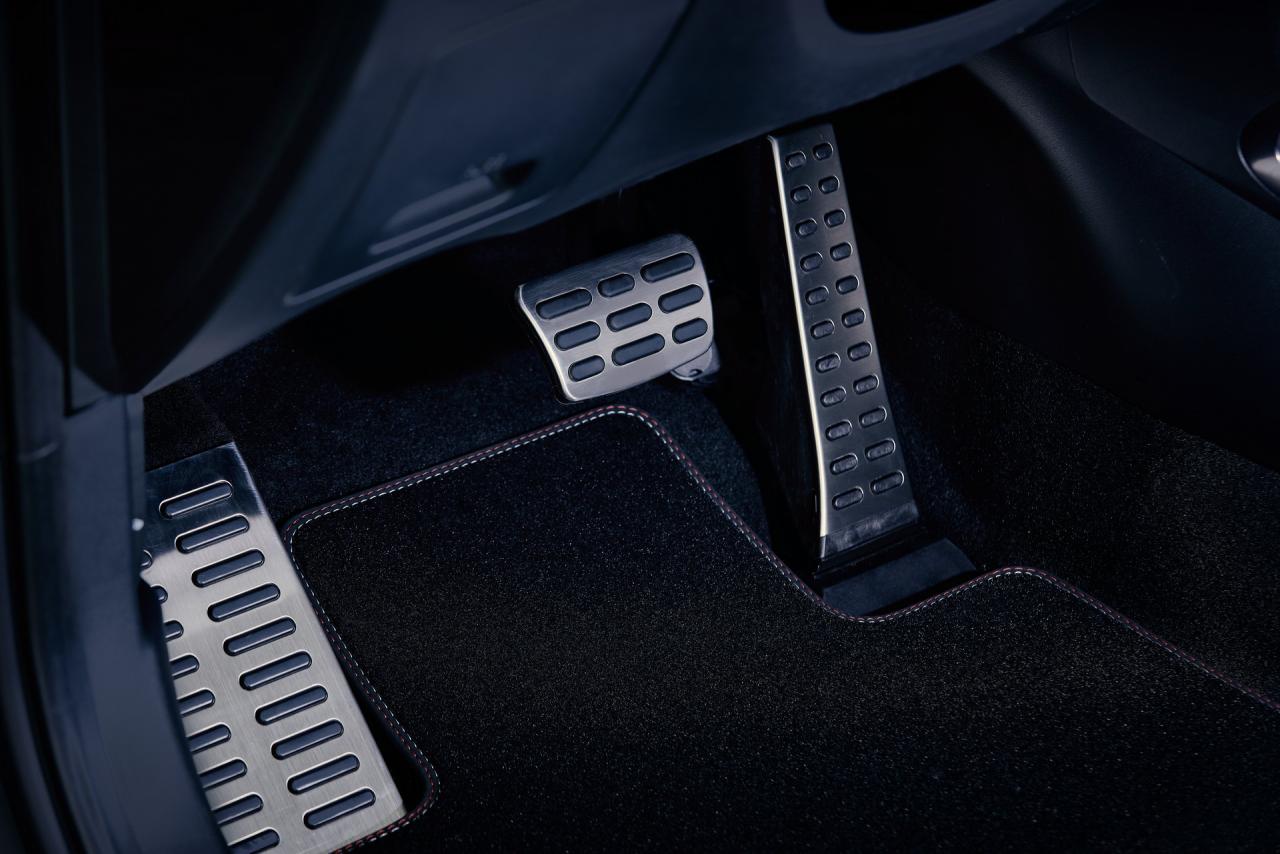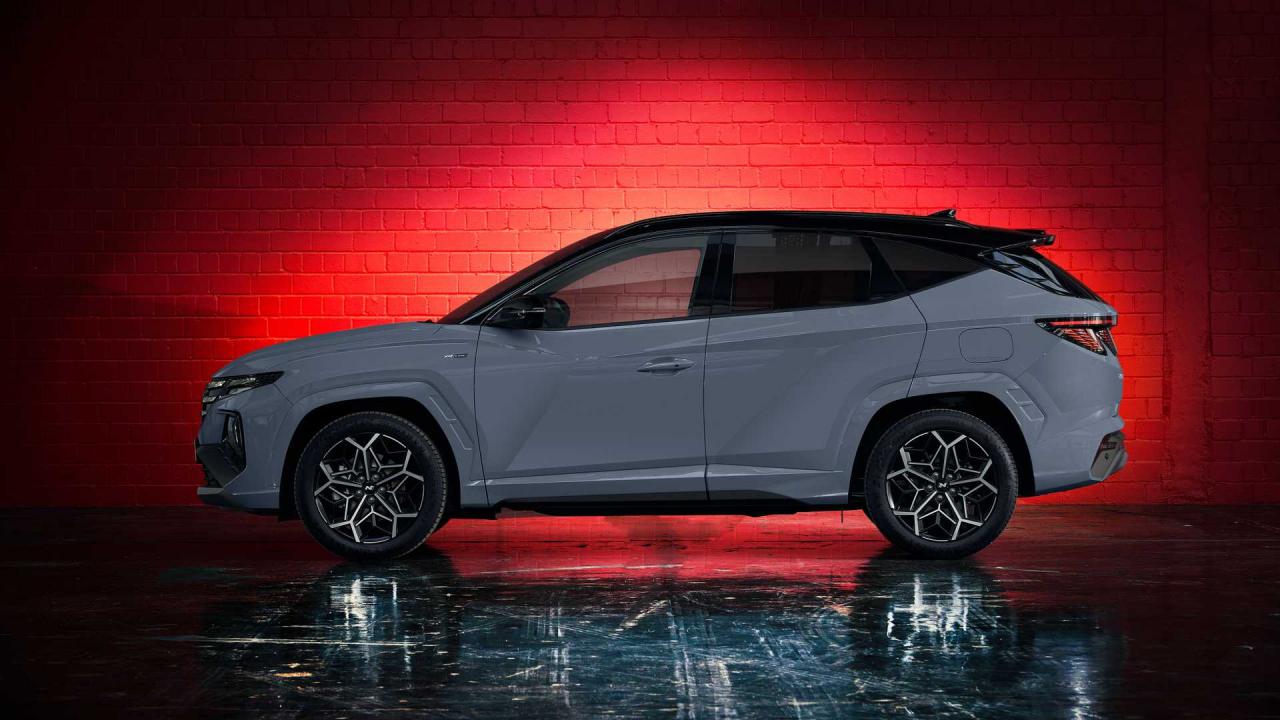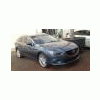Cerca nel Forum
Mostra i risultati del/dei TAG ''hyundai tucson'' .
Trovato 8 risultati
-
Hyundai Tucson Plug-in Hybrid Hyundai Tucson N Line Topic Spy -> https://www.autopareri.com/forums/topic/80321-hyundai-tucson-restyling-2024-spy/#comment-2548621
- 44 risposte
-
- 3
-
-

-
- hyundai tucson 2024
- tucson
- (e 4 altri in più)
-
A voi il nuovo e particolarissimo Tucson. Press Release Tucson: ‘Parametric Dynamics’: a revolutionary and unique exterior at the cutting-edge of SUV design Rather than simply an evolution of the previous generation model, the all-new Tucson represents a revolution for Hyundai in design terms. Overall, it features a bigger and wider body than its predecessor. Its muscular stance combines sharp angles and dynamic proportions with rich surfaces, ensuring a progressive look without compromising on Tucson’s rugged SUV heritage. The all-new Tucson is the first fully-changed Hyundai SUV to be developed according to the company’s new “Sensuous Sportiness” design identity. This direction is characterised by the harmony between four fundamental elements: proportion, architecture, styling and technology. Its purpose is to bring a sensuous and emotional touch to Hyundai vehicles, realised by innovative technology and solutions. The progressive design language of the all-new Tucson was inspired by Hyundai’s Vision T SUV concept, which was unveiled at 2019 AutoMobility LA. Also guided by Sensuous Sportiness, Vision T’s design themes revolve around the concept of Dynamism and represent an “urban adventurer” SUV design direction. Refraining from traditional drawing and sketching methods, Hyundai’s designers developed the all-new Tucson’s futuristic design elements through geometric algorithms produced by cutting-edge digital technology. This process, known as “parametric dynamics”, utilises lines, faces, angles and shapes created through digital data to create unprecedented, bold design aesthetics. As a result, prominent geometric patterns known as “parametric jewels” appear throughout the SUV’s design, giving it a progressive character. The most prominent display of these parametric jewels is on the vehicle’s front grille, where Parametric Hidden Lights provide a strong first impression. When the lights are off, the front of the vehicle appears covered in dark, geometric patterns, with no distinction between the signature LED Daytime Running Lights (DRLs), which are seamlessly integrated into the grille. Thanks to state-of-the-art half-mirror lighting technology, when the DRLs are switched on, the dark chrome appearance of the grille transforms into jewel-like shapes, bringing an eye-catching element to an otherwise sleek appearance. Parametric jewels also feature as a prominent design element on the side of the vehicle. Chiseled surfaces create a striking contrast between a sleek silhouette and masculine wedge, suggesting forward motion even when standing still. Taut athletic shapes seamlessly merge into angular wheel arches, where alloy wheels provide a powerful and dynamic stance. The Tucson’s sporty sensibility is accentuated through a chrome accent line with an edged parabolic shape, starting on the side mirrors and continuing all the way to the C-pillar. From the side view, the wrap-around doors are complemented by a sharp and bold side character line, which sits in harmony with the robust and rugged look of the dynamic and angulated wheel arches. On the rear, wide tail lamps with parametric hidden light details continue the design theme. The all-new Tucson’s rear bumper also integrates parametric pattern details with a three-dimensional effect, coupled with a sporty garnish. It is the first Hyundai model to apply hidden rear wipers, which sit under the spoiler. High-tech design elements are crowned by a smooth glass Hyundai logo, which looks three-dimensional but actually does not protrude from the outer surface, in a departure from traditional automotive manufacture emblems. The seamless integration of segment-leading technology provides all-new Tucson customers with an advanced and fully-customisable digital experience. The new 10.25-inch AVN-T screen fills the centre of the vehicle. Hyundai’s designers dispensed with physical knobs and buttons, so all AVN and heat, ventilation and air conditioning functions are controlled via touch, making it the first Hyundai model to feature a full touchscreen console. High-quality soft-touch materials appear throughout the interior, lifting the look and feel to a new level, while new indirect air vents start from the doors and flow to the centre console. The evolution of Tucson’s interior layout led to a lower instrument display and removal of the gauge cluster housing for a decluttered surface to enhance the feeling of openness inside. The broad ridge of the dashboard blends seamlessly with the doors, wrapping around front occupants like a deep gorge. These futuristic features provide an even more progressive feeling and bring new levels of high-tech design value to customers. The ergonomically-positioned arm rest is connected with the shift by wire application, for intuitive use by the driver, while also giving the car a clean and modern appeal. Occupants can also enjoy pleasant ambient mood lighting, which is positioned at the bottom of the centre fascia, in the wireless charging pad and door map pocket. It offers 64 configurable colours and 10 levels of brightness to fit every mood and offer even more scope for personalisation. In addition, customers can choose from three interior trims, including one-tone Black in fabric or leather, two-tone Black and Beige in fabric or leather and the Teal colour pack. The Teal pack offers a black textile or leather seat with teal stitching on the seats, armrest and gear shift. Teal textile inserts also feature on the cloth crash pad and door trim. State-of-the-art technology and connectivity The all-new Tucson is equipped with a host of state-of-the-art human-oriented technology features to provide an advanced digital experience. The fully digital configurable dual cockpit consists of a new 10.25-inch open cluster and 10.25-inch AVN-T screen. This offers a personalised space that is intuitively optimised for a high-tech user experience. For example, the colour schemes of the cluster change depending on which drive mode is selected. Hyundai is offering the latest version of its state-of-the-art Bluelink connected car services with the 10.25-inch infotainment system in the all-new Tucson. The upgraded Bluelink offers a range of new benefits and services for Hyundai customers, including Connected Routing, Last Mile Navigation and a new User Profile feature. Meanwhile, customers can locate their vehicle, lock and unlock it remotely, or view vehicle attributes like fuel level, via the Bluelink app. Occupants can tailor their individual infotainment choices with the new User Profile feature. This allows customers to install up to two main accounts and one guest account, and upload a profile picture via the Bluelink app. User Profile stores users’ infotainment preferences, such as language, Bluetooth, navigation and voice recognition settings, as well as their favourite radio stations, in the cloud. If drivers have to park their car within a 200-metre to two-kilometre radius from the destination, Last Mile Navigation can be activated to resume the guidance in the Bluelink app on the driver’s smartphone. With the new cloud-based Connected Routing navigation, driving routes are calculated on a powerful server inside the Bluelink cloud environment. This ensures more accurate traffic forecasting, more precise times of arrival, and more reliable route recalculation. As an additional benefit of Connected Routing, the autofill functionality saves drivers time in selecting a destination. Apple CarPlay and Android Auto allow customers to mirror the functionality of their iOS and Android smartphones in a simplified and convenient manner. With the eight-inch Display Audio, smartphones can be mirrored wirelessly. Other infotainment and connectivity features on the all-new Tucson include a premium sound system by KRELL for an enhanced listening experience, a wireless charging pad in the centre console, as well as front and rear USB ports for even more convenience, particularly on long journeys. In addition, the all-new Tucson will feature calendar integration inside the infotainment system, meaning the user will be able to see their Apple or Google Calendar on the AVN screen. Synchronisation is done via Bluelink App settings. This is just one more reason for customers to use and download the Bluelink app. Finally, Hyundai LIVE Services add real-time parking information and fuel station locations including prices, as well as weather information. Destinations or points of interest can also be sent from the app to the in-car navigation system. The all-new Tucson delivers increased comfort and convenience for every type of driver With a range of new convenience features, Hyundai offers even more comfort for all-new Tucson customers. For the first time in a Hyundai vehicle, the all-new Tucson’s hidden type Multi-Air Mode technology consists of a combination of direct and indirect air vents for air conditioning and heating to create a more pleasant indoor environment with more gentle air flow. When this mode is activated, the air is dispersed to the newly added multi-air slots in the front, in addition to the normal air vents. The overall wind volume remains the same, and is therefore just as effective at changing the temperature, but the dispersion of wind reduces direct air contact and softens the air. This mode can be switched on and off based on the preference of the driver. The three-zone climate control now caters to passengers in the rear seats in addition to occupants in the front of the vehicle. In addition, ventilated seats in the front and heated seats in the front and rear provide further comfort for the driver and passenger alike. In addition, with Walk-in Device drivers can slide and recline the passenger seat for the convenience of front- or rear-seat occupants with the simple use of a button on the seat’s bolsters. Rear Sleeping Mode allows the driver’s row to listen to their selected audio without the same audio being transmitted to the rear speakers, so that passengers who are sleeping will not be disturbed. For improved user convenience, the rear seats of the all-new Tucson can now be folded in a 4:2:4 ratio. Remote Folding furthermore allows the seats to be folded at a distance. The folding levers are located on the side walls of the boot. Increased roominess The all-new Tucson’s dynamic proportions and new platform provide a wide, open interior space that guarantees occupants comfort and roominess usually reserved for models in the segment above. At 20mm longer, 15mm wider, and a wheelbase that has been increased by 10mm as compared to the previous generation, the all-new Tucson is more spacious than ever before. As a result, rear passengers can enjoy 26mm of additional legroom. This has been achieved for both the hybrid and internal combustion engine models, due to a clever placement of the battery underneath the rear passenger seats. Meanwhile, boot space has been increased by 33 to 107 litres, depending on the chosen trim and powertrain, offering up to 620 litres overall for luggage with the seats up and up to 1,799 litres with the seats folded. Dimensions (in mm) Length: 4,500 (+20mm) Width: 1,865 (+15mm) Height: 1,650 (+5mm) Wheelbase: 2,680 (+10mm) Overhang: front 895mm, rear 925mm Second row legroom: 996 (+26mm) Boot (in litres) Minimum volume, with seats up (Gasoline/ Diesel/ Gasoline 48V/ Diesel 48V/ Hybrid): 620 / 598 / 577 / 546 / 616 Maximum volume, with seats folded (Gasoline /Diesel /Gasoline 48V/ Diesel 48V/ Hybrid): 1,799 / 1,777 / 1,756 / 1,725 / 1,795 Most comprehensive active safety and driving assist package in its class With best-in-class advanced driver-assistance systems and an active safety package with a range of innovative features, the all-new Tucson delivers even more peace of mind for Hyundai customers. The all-new Tucson is outfitted with an enhanced seven-airbag system, which features a new first row center side airbag, a feature unique to this segment. This prevents front row passengers from colliding with one another in the case of a collision, minimising the risk of serious injuries. When the deployment of the airbags is trigged by a front or side impact, Multi-collision braking automatically applies emergency brakes to reduce the risk of secondary, or multiple, collisions. The all-new Tucson has been equipped with Forward Collision-Avoidance Assist (FCA), which sounds alarms when a collision becomes imminent with cars, bicycles, or pedestrians ahead. When the driver fails to react and brake in time, the system automatically controls the brakes to avoid an accident. For the first time in a Tucson, FCA now includes Junction Turning, which expands the range of protection to include collisions at intersections. This function detects oncoming cars from the other side when turning left at a junction and, if a collision appears likely, applies the brakes to stop the car. Lane Following Assist (LFA) prevents accidental lane departure and keeps the vehicle safety centred within the lane. Using the forward camera to recognise the intended lane, LFA will automatically provide corrective steering input to help maintain the centre path. This works together with the Lane Keeping Assist (LKA) function, which now detects road edges as well as lines. Driver Attention Warning (DAW) is a driver protection feature which helps monitor driving patterns in order to detect fatigued driving and prevent potential accidents. This works in tandem with Leading Vehicle Departure Alert (LVDA). LVDA alerts the driver when the vehicle ahead of them starts moving forward and they do not react quickly enough, for example at traffic lights. Introduced for the first time in a compact SUV, Highway Driving Assist (HDA) makes highway driving safer and more comfortable. HDA regulates the car’s speed and maintains its distance to other vehicles in front, as well as the current lane of travel on the highway. A special button on the steering wheel allows the driver to activate HDA with just one click. HDA works in combination with LFA and navigation-based Smart Cruise Control Curve (NSCC-C). With this feature, all-new Tucson drivers can set the speed using SCC then, for greater safety and convenience, NSCC-C is capable of automatically adjusting the vehicle speed for the incoming curve, based on local road information. It reduces the cruising speed and, upon exiting the curve, returns to the preset speed level. Another new feature is Intelligent Speed Limit Assist (ISLA). As well as displaying speed limits on the AVN screen, ISLA automatically adjusts the all-new Tucson’s speed so that drivers do not exceed the limit. For even more assurance, the all-new Tucson has been outfitted with a series of functions that increase visibility on the road. Blind-spot Collision Avoidance Assist (BCA). This system now applies differential braking, in addition to visual and audio warnings, to prevent the car from colliding into other vehicles when changing lanes. This function uses the vehicle’s front-view camera and rear corner radars to calculate the relative position and speed of vehicles on the side or in the Tucson’s blind-spot. BCA is equipped with Rear Cross-traffic Collision-avoidance Assist. When backing out, RCCA alerts the driver to the approach of a vehicle crossing their rearward path. If necessary, the brakes are applied to prevent a collision. A feature unique to the segment is the new Blind View Monitor (BVM), which shows the rear and side views of the car on the digital instrument panel when the driver activates the turn signal. This offers an enhancement of the views on the side mirror by displaying blind spots that are otherwise not visible, and also provides additional visual support in dark and rainy conditions. A feature unique to the segment is the Blind view Monitor. When the driver signals a lane change, one of the two main dials of the 10.25’’ Supervision Cluster will display a view of the blind spot of the respective side. BVM also works in combination with the Surround View Monitor (SVM), so that drivers can experience a 360-degree, three-dimensional view of the vehicle from various viewpoints. This includes zooming in and out for the front, rear, left and right of the vehicle SVM also utilises a bird’s eye view to further enhance the visibility of potential obstacles. SVM is also synchronised with the new Remote Smart Parking Assist (RSPA), which is available on the hybrid version of the all-new Tucson. RSPA aids drivers when parking and pulling out by automatically move forward and rear the vehicle. The feature can be activated and controlled via the Smart Key. The new Safe Exit Warning (SEW) function alerts occupants if there is oncoming traffic when they attempt to step out of the car. This feature is being introduced to a mainstream compact SUV for the first time. Another highlight feature is the new Remote Smart Parking Assist (RSPA). Even if outside the car, drivers can enter or pull out the car from a parking space using a button on the Smart Key. The vehicle utilises ultrasonic sensors to identify obstacles, and emergency braking is applied whenever the risk of a collision is detected. When switched to automatic mode, High Beam Assist (HBA) detects both oncoming vehicles and those in the same lane ahead at night, as well as changing to low-beam as appropriate, thereby reducing blinding effects on other drivers. When no more vehicles are detected, the system automatically reactivates the high beams, maximising the driver’s range of vision. Other improved and innovative features make the all-new Tucson an assuring and reliable family-friendly car. The new Rear Occupant Alert (ROA) system monitors the rear seats via a sensor that detects the movements. Visual and auditory warnings are then relayed to the driver to ensure they remove passengers from the rear seats before leaving and locking the vehicle. Rear Passenger Sleeping Mode (RPSM) lowers the rear speakers in order to make the back of the car more relaxing for occupants, when undertaking long journeys. Available Hyundai SmartSense active safety and driving assistance features: Forward Collision-Avoidance Assist (FCA with car, pedestrian and cyclist protection) [NEW: Junction Turning] Leading Vehicle Departure Alert (LVDA) [NEW] Highway Driving Assist (HDA) 1.5 [NEW] Navigation-based Smart Cruise Control Curve (NSCC-C) [NEW: using navigation data] Intelligent Speed Limit Assist (ISLA) [NEW] Blind Spot-Collision Warning (BCW) Blind-spot Collision Avoidance Assist (BCA) [NEW] Safe Exit Warning (SEW) [NEW] Remote Smart Parking Assist (RSPA) [NEW: HEV/PHEV only] Surround View Monitor (SVM) [upgraded] Blind View Monitor (BVM) [NEW] Rear Occupant Alert (ROA) [NEW] Lane Following Assist (LFA) [NEW] Lane Keeping Assist (LKA) [upgraded] Driver Attention Warning (DAW) Rear Cross Traffic Collision Warning (RCCW) Rear Cross-traffic Collision-avoidance Assist (RCCA) [NEW] High Beam Assist (HBA) For further peace of mind, Hyundai offers its industry-leading five-year unlimited mileage warranty with the all-new Tucson. Four-wheel drive and Terrain Modes make the all-new Tucson a true SUV The all-new Tucson consolidates its true SUV credentials with 4x4 capabilities, thanks to its new Terrain Mode selector, which provides even more enjoyment for drivers. This feature, available on hybrid version with automatic transmission, utilises Hyundai’s signature HTRAC four-wheel drive technology, which enables agile handling and better torque application depending on wheel grip and vehicle speed. In addition to different drive modes, three additional terrain modes – Mud, Sand and Snow – optimise the driving performance and HTRAC settings for an enhanced driving experience on a variety of terrain. A comfortable or sporty ride with new Electronic Controlled Suspension and tuning The all-new Tucson has been developed and tested in Europe performing accelerated durability tests and dynamic testing on the most demanding race track in the world, the famous Nürburgring Nordschleife, as well as undergoing rigorous public-road testing throughout Europe from the coldest winter testing conditions in Sweden to trailer testing in the Alps and hot weather testing in the south of Spain to ensure that the high expectations of European customers are met. Customers can choose between two different suspension systems for the all-new Tucson, with both offering adaptive and conventional dampers for enhanced ride and handling. Thanks to the flexibility offered by the Electronic Controlled Suspension’s (ECS) adaptive damping technology, Hyundai’s engineers achieved a very versatile driving behaviour, depending on the situation and driver preference. For daily commuting in Normal or Eco mode, the development was focused on a comfortable, flat and stable ride on even the most challenging roads. The ECS automatically and continuously controls the vehicle’s suspension to maximise driving comfort and performance. It achieves this by taking into account driving conditions such as speed, road surfaces, cornering, stopping requirements and acceleration. By controlling the damping force on each individual wheel, ECS reduces roll, pitch and vertical motion to enhance ride and handling. When choosing the Sport mode, all-new Tucson drivers can enjoy an extra level of response and control. Meanwhile, the conventional dampers use a new valve technology that offers more tuning flexibility. A MacPherson strut on the front and multi-link suspension on the rear ensure good levels of comfort and handling. The all-new Tucson’s Rack-mounted Motor Driven Power Steering (R-MDPS), which features a new generation Belt Drive steering gear, was tuned to match the character of the vehicle’s suspension. Over the course of many months of testing with both prototype vehicles and cutting-edge engineering simulation tools, Hyundai’s engineers finely calibrated the system to ensure drivers can experience smooth and connected steering. Drivers who select Sport Mode will experience a sharper steering effort build-up, before enjoying a greater sense of precision when driving for instance on the motorway. Hyundai has developed a wide variety of tyre options for the all-new Tucson with three aerodynamic wheel choices: 17-inch steel or alloy, or 18- and 19-inch alloy options. The tyre choices were developed in close cooperation with top-tier tyre manufacturers Continental and Michelin, with special attention given to aspects such as comfort, road noise isolation and the handling performance. In addition, Hyundai’s engineers achieved low rolling resistance values, which contribute to minimising the vehicle’s fuel consumption and emissions. This underlines the company’s commitment to producing eco-friendly cars without compromising on performance. The broadest range of electrified powertrains in the compact SUV segment By offering three electrified powertrain options and two internal combustion engines with four transmission choices, the all-new Tucson suits every type of driver. With gasoline and diesel 48-volt mild hybrid, full hybrid and plug-in hybrid available to consumers, the all-new Tucson offers the widest range of electrified powertrains in the compact SUV segment. In addition to the electrified powertrains, the all-new Tucson also offers a range of gasoline and diesel options. The all-new Tucson was developed to reduce emissions without compromising on being fun to drive. The hybrid version consists of the new 1.6-litre T-GDI (turbocharged gasoline direct injection) Smartstream engine and a 44.2 kW electric motor, with a 1.49 kWh lithium-ion polymer battery. It is paired with a six-speed automatic transmission (6AT) and available with two-wheel or four-wheel drive. The system is the most powerful in the all-new Tucson’s powertrain line-up, with a combined output of 230 PS power, meaning it offers low emissions without compromising on driving fun. In terms of 48-volt mild hybrid technology, customers can choose from three different options: 1.6-litre T-GDI Smartstream with 150 PS and two-wheel drive 1.6-litre T-GDI Smartstream with 180 PS with optional four-wheel drive 1.6-litre CRDi Smartstream with 136 PS with optional four-wheel drive Hyundai has combined its efficient and responsive 48-volt mild hybrid technology with the 150 PS 1.6-litre T-GDI, which will be available with six-speed Intelligent Manual Transmission (6iMT) and a seven-speed dual clutch transmission (7DCT). Another well-balanced option is the 1.6-litre T-GDI with 180 PS, which will be offered with six-speed iMT with two-wheel drive in addition to 7DCT with four-wheel drive. Meanwhile, the 136 PS 1.6-litre CRDi 48V mild hybrid engine arrives with 7DCT and either four- and two-wheel drive. When not mated to the 48-volt mild hybrid system, the 1.6-litre T-GDI Smartstream gasoline engine is available with 150 PS, a six-speed manual transmission and four- or two-wheel drive. The 1.6-litre CRDi Smartstream diesel engine will be available with 115 PS and a six-speed manual transmission with two-wheel drive. The all-new Tucson’s 1.6 T-GDI Smartstream engine will be equipped with Hyundai’s Continuously Variable Valve Duration (CVVD) technology. CVVD optimises engine performance and fuel efficiency while also being eco-friendly. The valve control technology regulates the duration of the valve opening and closing according to driving conditions. This is the only system that can change the duration of the valve opening during a ride, depending on conditions. A plug-in hybrid version of the all-new Tucson with a 1.6-litre T-GDI engine and 265 PS will also be available to customers. More details will be revealed closer to the market launch in 2021. Hyundai’s new Intelligent Manual Transmission (iMT) All-new Tucson customers have the option of Hyundai’s newly developed iMT. iMT operates purely electronically, and decouples the engine from the transmission after the driver releases the accelerator while driving at constant speed, allowing the car to enter into coasting mode. This improves overall fuel efficiency. The driver’s chosen gear remains engaged even with the engine off. The engine restarts in the same gear as soon as the driver presses either the brake or accelerator pedals thanks to the burst of power provided by the Mild Hybrid Starter Generator (MHSG). The transmission restarts the engine in neutral (with an open clutch) if the driver pushes the clutch pedal to change gear, or if the vehicle speed is too low for the current engaged gear. The first all-new Tucson models – hybrid, diesel and gasoline including 48-volt mild hybrid – will appear in Hyundai’s European showrooms towards the end of this year. Meanwhile, the plug-in hybrid version and N Line trim will arrive at the beginning of next year. Tucson Plug-in Hybrid Hyundai rilascia informazioni anche sulla variante PHEV del nuovo Tucson. Il motore è il 1.6 T-GDi della generazione Smartstream abbinato ad un elettrico da 66.9 kW (e batterie a polimeri di litio da 13.8 kWh): insieme erogano 265 cv Il cambio è un automatico a 6 rapporti. Press Release Tucson PHEV: All-new Tucson Plug-in Hybrid powertrain to feature a combined power output of 265 PS The all-new Tucson Plug-in Hybrid will be equipped with a powerful and efficient powertrain. The system is based on the third generation 1.6-litre T-GDi Smartstream engine. This is paired with a 66.9 kW electric motor with a maximum torque of 304 Nm and a 13.8 kWh lithium polymer battery. Combined, the gasoline engine and electric motor deliver 265 PS maximum power and 350 Nm maximum torque. The system is paired with a six-speed automatic transmission (6AT) operated through shift by wire and standard four-wheel drive. The all-new Tucson Plug-in Hybrid is also equipped with an Active Air Flap that adjusts air intake depending on the engine coolant temperature, vehicle speed, and more. The purpose of this function is to minimise air resistance and maximise fuel efficiency. Plug-in hybrid system for low-emission, no-compromises driving The plug-in hybrid system in the all-new Tucson allows for maximum fuel efficiency combined with great driving fun. As with all hybrid vehicles, when driving at low speeds, the all-new Tucson Plug-in Hybrid is powered by the electric motor alone, which results in quiet driving and no fuel consumption. Drivers can also switch to fully electric driving on demand by pushing the respective button, benefitting from an all-electric driving range of over 50km (internal WLTP estimate*). Equipped with a 7.2 kW on-board charger, the Tucson Plug-in Hybrid can be charged at an EV charging station or using a home wall box. Generous space inside thanks to smart battery placement Thanks to a clever placement of the high voltage battery on the underbody, the Tucson Plug-in Hybrid offers generous space and legroom inside. Rear passengers can enjoy 955mm of legroom. Meanwhile, boot space has even been increased compared to the previous Tucson, offering 558 litres (+9%) overall for luggage with the seats up and up to 1,737 litres (+15%) with the seats folded. Ready for a variety of roads and terrain For a true SUV feeling, four-wheel drive (4WD) comes standard on the all-new Tucson Plug-in Hybrid. It is equipped with Hyundai HTRAC four-wheel drive technology and a Terrain Mode selector for safe driving on challenging terrain. HTRAC can variably distribute driving power to the front and rear wheels depending on traction conditions and the driving state, while the Terrain Mode selector will optimise power, torque and braking depending on the road conditions selected by the driver. The optional Electronically Controlled Suspension (ECS) uses adaptive damping technology to provide versatile driving characteristics, depending on the situation and driver preference. The ECS automatically and continuously controls the vehicle’s dampers to maximise driving comfort and performance. Drivers can also adjust the ECS and steering characteristics by choosing Eco or Sport Mode. These features contribute to even more driving fun of this powerful SUV. All-new Tucson is a smart tech hero with a standout design As with the other powertrain variations, the plug-in hybrid version of the all-new Tucson stands out for its progressive design, integrating sharp lines, angles and shapes, as well as the signature Parametric Hidden Lights. A host of human-oriented technology features enable an intuitive user experience, including a 10.25-inch digital cluster without a housing and a 10.25-inch AVN display with Hyundai Bluelink® connected car services. Bluelink® users can also check the Tucson Plug-in Hybrid’s battery charge level and manage charging settings via the app. In addition, the all-new Tucson’s best-in-class driver-assistance systems and active safety features make it one of the safest vehicles on the market. Among others, Remote Smart Parking Assist (RSPA) allows the car to park itself, taking the pressure off the driver in tricky parking situations. Highway Driving Assist (HDA) keeps the car in the centre of its lane while adapting the speed based on navigation data and traffic around, for example for upcoming curves on highways. The Parking Collision-avoidance Assist, available exclusively on the Tucson Plug-in Hybrid, helps prevent collisions with obstacles in the rear while reversing at low speeds. The system emits audible and visual warnings and applies the brakes when necessary. A variety of other safety features contribute to improving visibility, protecting both front and back-seat occupants, and preventing collisions. The all-new Tucson Plug-in Hybrid will be available in Europe starting in spring 2021. * The vehicle is not yet available on sale and has not been homologated yet. Hyundai Europe Tucson N-Line Allestimento sportivo N Line anche per Tucson. Press Release: Un design esterno dinamico ispirato al motorsport Come il modello standard, Nuova TUCSON N Line si distingue per il suo design moderno che integra linee, angoli e forme taglienti, oltre alle caratteristiche Parametric Hidden Lights di TUCSON. L’aspetto muscoloso del design esterno di Nuova TUCSON N Line si basa sull’identità stilistica “Sensuous Sportiness” di Hyundai, e offre allo stesso tempo richiami stilistici curati orientati alle prestazioni. Inoltre, le proporzioni ne enfatizzano le credenziali sportive con un corpo vettura basso e largo. Come Nuova TUCSON, anche la versione N Line presenta marcati motivi geometrici denominati “Parametric Jewels”, che donano al modello un carattere possente ed energico. Sul frontale, i “Parametric Jewels” sono presenti in modo più evidente sulla griglia che, rispetto a Nuova TUCSON, è più larga e posizionata più in alto. Per la versione N Line, i motivi “Parametric Jewels” sono stati realizzati con dei bordi, creando riflessi aggiuntivi a seconda dell'angolazione. Sotto alla griglia – che integra anche il badge N Line – si trovano un paraurti di forma rettangolare e un’elegante presa d’aria più alta e grande rispetto a quella presente sulla versione standard del modello in modo da creare un look più sportivo. Il paraurti, replicato anche nella parte posteriore, si abbina armoniosamente alle piastre protettive inferiori in argento, mentre delle suggestive cornici nere incorniciano i gruppi ottici anteriori. Lateralmente, Nuova TUCSON N Line è caratterizzata da una modanatura in tinta carrozzeria dall’aspetto energico, che sottolinea le proporzioni e le linee dinamiche donando al modello un aspetto più snello. A completamento, è presente una finestratura sportiva - daylight opening (DLO) - in nero lucido, che termina nell’angolo acuto del montante C creando una sensazione di movimento in avanti ispirata alla pista. Allo stesso modo, gli eleganti specchietti laterali in Phantom Black enfatizzano ulteriormente lo stile di Nuova TUCSON N Line. Per rimarcare il carattere sportivo del modello, il retro di Nuova TUCSON N Line è dotato di uno spoiler aerodinamico più lungo di quello del modello standard e decorato con delle alette, mentre la parte inferiore è caratterizzata da una banda riflettente rossa e da un diffusore. Un grintoso doppio scarico evidenzia ulteriormente come i designer abbiano preso spunto dalle auto ad alte prestazioni. Nuova TUCSON N Line è equipaggiata con cerchi in lega da 19 pollici più robusti e sportivi, con motivi parametrici che richiamano il tema della Sensuous Sportiness e ne enfatizzano la struttura geometrica. Il look è completato dai passaruota in tinta con la carrozzeria. Explanatory video Nuova TUCSON N Line è proposta con sette colori per la carrozzeria e, per una maggiore personalizzazione, è disponibile come optional il tetto bicolore Phantom Black in abbinamento a cinque colorazioni. Colori per la carrozzeria: Shadow Grey [esclusivo per il modello N Line] con tetto Phantom Black Polar White con tetto Phantom Black Engine Red con tetto Phantom Black Sunset Red con tetto Phantom Black Dark Knight con tetto Phantom Black Shimmering Silver Phantom Black Interni spaziosi con dettagli sportivi L’abitacolo sofisticato e spazioso di Nuova TUCSON N Line presenta forme sinuose ispirate alle cascate. Questa caratteristica viene accentuata dallo stile sportivo degli interni N Line e da un pacchetto colori esclusivo. I clienti di Nuova TUCSON N Line potranno beneficiare di sedili sportivi marchiati N, caratterizzati da rivestimenti neri scamosciati e in pelle, e dalle cuciture rosse, intrecciate anche sul rivestimento delle portiere e del bracciolo; inoltre, anche il crash pad in stoffa grigia è arricchito con inserti rossi, e il volante è dedicato e completo di logo N. A seconda della tipologia di trasmissione selezionata, sono presenti altri elementi di design connessi al brand N sul rivestimento in pelle del cambio o sulla copertura della console “shift-by-wire”, mentre il black headliner dona all’abitacolo un tocco in più di sportività. Ulteriori caratterizzazioni dedicate alla N Line includono la pedaliera, il poggiapiedi e le pedane sottoporta in metallo. Guida e tenuta migliorate Sviluppata e testata in Europa, Nuova TUCSON N Line è dotata di Sospensioni a Controllo Elettronico (Electronically Controlled Suspension - ECS) disponibili come optional che offrono una maggiore flessibilità su strada attraverso una tecnologia di ammortizzazione adattiva. Attraverso le ECS, gli ingegneri Hyundai sono riusciti a ottenere un comportamento di guida molto versatile che si adatta alle diverse situazioni e alle preferenze dei guidatori. Con l’obiettivo di massimizzare il comfort e le prestazioni di guida, le Sospensioni a Controllo Elettronico regolano automaticamente e costantemente gli ammortizzatori del veicolo, tenendo in considerazione anche variabili di guida come velocità, condizioni stradali, svolte, necessità di arresto e accelerazioni. Inoltre, le sospensioni ECS riducono il rollio, il beccheggio e il movimento sull’asse verticale controllando la forza di smorzamento singolarmente su ogni ruota e migliorando dinamica di guida e tenuta di strada. Infine, gli ingegneri dello Hyundai Motor Europe Technical Center (HMETC) hanno sviluppato parametri delle ECS separati e ottimizzati, con una specifica messa a punto dedicata alle versioni di Nuova TUCSON N Line equipaggiate con i powertrain da 48 volt. Questo consente ai clienti N Line di usufruire di un maggiore divertimento alla guida, in linea con il look sportivo del modello. Gli ingegneri Hyundai hanno ottimizzato le sospensioni ECS affinché le versioni di Nuova TUCSON N Line possano ottenere un migliore smorzamento delle vibrazioni e una maggiore agilità. Su Nuova TUCSON N Line, il sistema delle sospensioni ECS reagisce più rapidamente e con maggior vigore sia ai movimenti del veicolo sia ai comandi dello sterzo: in modalità Normal, gli ingegneri hanno mantenuto un buon comfort di guida per il traffico urbano, assicurando una maggiore rigidità solo nella guida extra-urbana. La modalità Sport è stata invece configurata per offrire maggiore controllo e risposta a tutte le velocità, mentre un supporto antirollio incrementato garantisce un maggiore controllo in tutte le condizioni. Su queste versioni, come conseguenza dell’adattamento del sistema delle sospensioni ECS, anche lo sterzo offre una sensazione diversa: più bilanciato e meno leggero, dona una sensazione di maggiore connessione del conducente alle ruote, per una guida ancora più sportiva e diretta. Motorizzazioni, sicurezza e connettività Nuova TUCSON N Line è disponibile con una varietà di motorizzazioni potenti ed efficienti, proposte con diversi livelli di elettrificazione. Per la massima efficienza, ciascun powertrain è basato su un motore Hyundai Smartstream: un turbo benzina T-GDI a quattro cilindri da 1.6 litri o un turbo diesel CRDi a quattro cilindri da 1.6 litri. La versione N Line sarà disponibile su numerose motorizzazioni di Nuova TUCSON, ad esclusione del propulsore diesel con potenza da 115 CV. Motorizzazioni disponibili: 1.6 T-GDI Plug-in Hybrid (265 CV) 1.6 T-GDI Hybrid (230 CV) 1.6 T-GDI 48V Mild Hybrid (150 CV) 1.6 CRDi 48V (136 CV) – prossimamente Come su Nuova TUCSON, una serie di funzionalità tecnologiche incentrate sull’uomo offrono un’esperienza utente intuitiva che comprende un dual cockpit configurabile e completamente digitale formato da un nuovo cruscotto aperto senza alloggiamento da 10,25 pollici e uno schermo touchscreen - anch’esso da 10,25 pollici – dotato dei servizi di telematica Hyundai Bluelink. Questo pacchetto crea uno spazio personalizzato e ottimizzato per un’esperienza high-tech. Nuova TUCSON N Line è dotata anche della tecnologia Multi-Air, che combina ventole dirette e indirette per l’aria condizionata e il riscaldamento, in modo da creare un ambiente interno più piacevole caratterizzato da una circolazione dell’aria più leggera. I comandi della climatizzazione a tre zone soddisfano le necessità sia dei passeggeri presenti nei sedili anteriori sia di quelli presenti nei sedili posteriori, mentre sedili anteriori ventilati e sedili anteriori e posteriori riscaldati forniscono al guidatore e ai passeggeri ulteriore comfort. Il pacchetto di guida assistita e sicurezza attiva ai vertici della categoria di Nuova TUCSON N Line la rendono uno dei veicoli più sicuri sul mercato: il Blind View Monitor (BVM) potenzia la visuale sullo specchietto laterale, proiettando il rispettivo angolo cieco nel cluster digitale quando viene inserita la freccia per un cambio di corsia; l’Highway Driving Assist (HDA) mantiene il veicolo al centro della corsia, adattando la velocità in base al traffico circostante e ai dati di navigazione, prevedendo ad esempio curve imminenti in autostrada; tra le altre funzionalità anche il Remote Smart Parking Assist (RSPA) – disponibile per i powertrain hybrid e plug-in hybrid – che permette al veicolo di parcheggiarsi da solo, alleviando la pressione del conducente in situazioni di parcheggio insidiose. Infine, una serie di altre funzionalità di sicurezza contribuiscono a migliorare la visibilità, a proteggere i passeggeri sui sedili anteriori e posteriori, e a prevenire collisioni. I dettagli completi su tutte le varianti di powertrain di Nuova TUCSON e sulle funzionalità di connettività avanzata e sicurezza sono disponibili al seguente link. Nuova TUCSON N Line sarà disponibile in Europa a partire dalla primavera 2021, mentre le versioni N Line hybrid e plug-in hybrid saranno disponibili dall’estate 2021. Hyundai Italia Topic Spy ➡️ Hyundai Tucson IV 2021 - Prj. NX4 (Spy)
-

Hyundai Tucson IV - Prj. NX4 - 2020 (Spy)
nella discussione ha aggiunto Pandino in Scoops and Rumors
Thekoreancarblog Terza generazione del suv Hyundai.- 35 risposte
-
- hyundai spy
- hyundai
-
(e 3 altri in più)
Taggato come:
-
[CHN] Hyundai Tucson Facelift 2020
nella discussione ha aggiunto sonicwp7 in Presentazioni Nuovi Modelli
immagini non adatte a persone deboli di stomaco...- 4 risposte
-
- 2
-

-

-
- hyundai tucson facelift cina
- chn
- (e 6 altri in più)
-
| Topic Spy: http://www.autopareri.com/forums/topic/64308-hyundai-tucson-facelift-spy |
- 19 risposte
-
- 1
-

-
- salone di new york
- salone di new york 2018
- (e 8 altri in più)
-
Sembra che la nuova Tucson di Hyundai stia per ricevere un restyling pesante all'anteriore ed al posteriore e nel trattamento della fiancata. La cosa meno "invasiva" potrà esser almeno un design diverso per i paraurti anteriore e posteriore, con prese d'aria rivedute. Mentre nuovi fari anteriori e posteriori saranno sicuramente installati, oltre ad un ridisegno del portellone posteriore. Nessuna novità per la gamma motori, che sarà sicuramente aggiornata alle nuove normative.
-
Messaggio Aggiornato al 22/07/2015 carscoops Press Release: Hyundai Prezzi: ------ Ecco anche il Tucson. Imho molto bello e più riuscito dell' ix35 che va a sostituire.
- 133 risposte
-
- hyundai
- hyundai ix35
- (e 6 altri in più)
-
Solo thumbnails...le foto non si ingrandiscono e non sono uploadabili. Malefico Leftlanews. More info: http://www.leftlanenews.com/hyundai-tucson-future.html
- 25 risposte
-
- hyundai
- hyundai ix35
- (e 6 altri in più)

